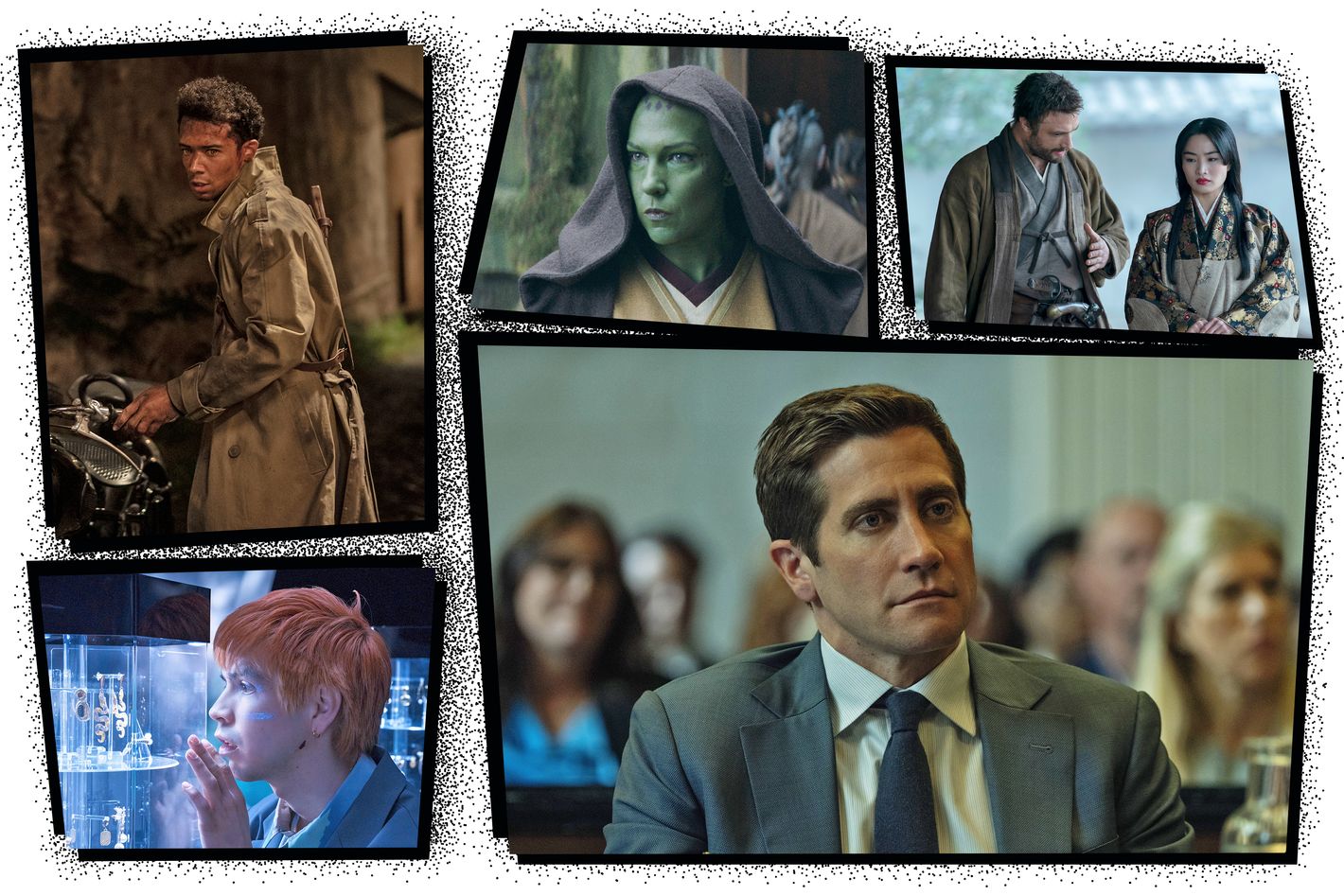This list is updated monthly with new “best of the year” worthy titles.
It’s too soon to say how the 2023 Hollywood strikes will shape the industry in the long term, but here in the short term, it’s clear that television is still in its strike-hangover period. Last year’s production delays are this year’s slow-to-start TV calendar, as networks and streamers parcel out their already completed and/or international content while delayed series get back on their feet. The silver lining of this current drought, however, is that it’s proportional to the absolute deluge of television we were getting only a short time ago — there may be fewer buzzy new shows overall, but the ratio of good TV within that number is still high. We may never again reach the dizzying heights of peak Peak TV (and that may actually be okay), but as one of this year’s early comedic standouts, Girls5eva, taught us, there are rewarding highs to be found in “the medium time,” too. Here, the 2024 shows that are keeping us optimistic as we watch TV’s new era take shape.
This list includes 2023 series that aired the majority of their season after Vulture closed its “Best of the Year” list. All shows are listed by season-premiere date, starting with the most recent releases.
The Decameron (Netflix)
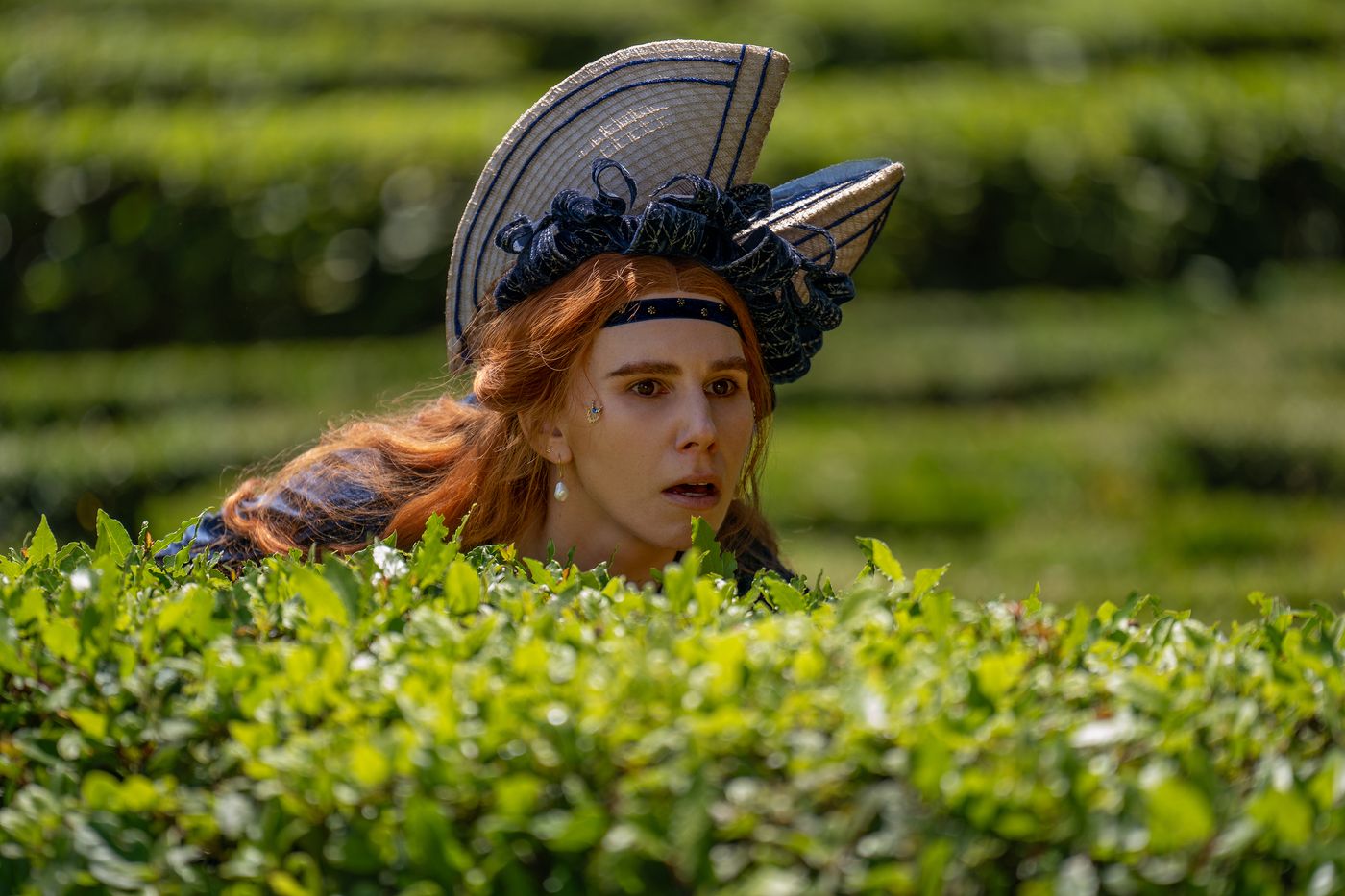
Perhaps it’s best to go into The Decameron with absolutely no knowledge of its 14th-century Italian source material, a set of short stories that featured as its framing device a group of people hiding from the bubonic plague in a secluded villa swapping tales to pass the time. If you’re expecting contained stories and rotating narrators, The Decameron — with its interwoven narratives, group infighting, and overarching themes about class warfare — might disappoint in its sprawl. (And, admittedly, the series’s pacing over its eight hour-long episodes could be tighter.) But! In this form, The Decameron is a fun hang, an ensemble series that evokes Miracle Workers, The Little Hours, and various other projects that mix together ribald raunch, wealth-gap commentary, and a zanily anachronistic feel. The series focuses on the nobles and servants grappling over control of a beautiful countryside villa; the vast destruction caused by the Black Plague has made commoners question the status quo, the faithful reconsider their relationship to God, and the rich even more protective over their vast resources. It’s a powder-keg of dramatic tension, and it’s led by a couple of excellent performances from Derry Girls’ Saoirse-Monica Jackson and Veep’s Tony Hale. —Roxana Hadadi
➽ Read Kathryn VanArendonk’s review of The Decameron and Shannon Keating’s interview with star Saoirse-Monica Jackson.
My Lady Jane (Prime)
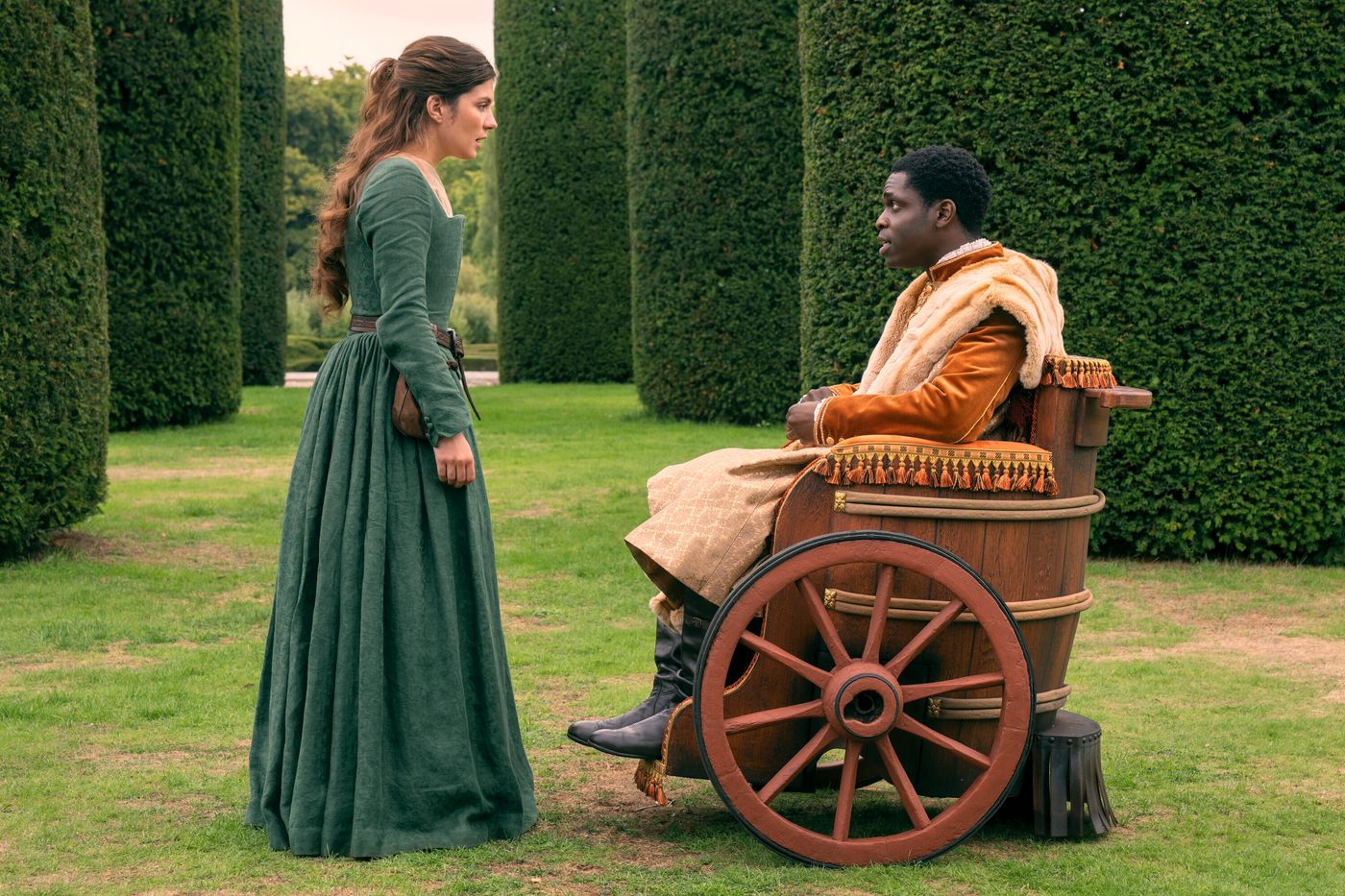
The premise is a little bananas: historical adventure romance about an alternate timeline where Lady Jane Grey does not get executed and instead has fun with her friends, messes around in court politics, and kisses hot broody types. This part of the show is plenty enjoyable on its own, especially because Jane (Emily Bader) stays fairly grounded while the world around her gets wild. Her king Edward VI (Jordan Peters) keeps almost being poisoned to death; her mother, Lady Frances (Anna Chancellor), is stellar at scheming and strategizing. But none of this is why My Lady Jane became a word-of-mouth phenomenon this summer. The reason people love this show is because while all that is happening, there are also shapeshifters! It’s the Catholics versus the Protestants, except it’s annoying prejudiced snobs vs people who can turn into bears. Tudor shapeshifters! Sometimes it’s just so nice when TV figures out how to be fun again. —Kathryn VanArendonk
Presumed Innocent (Apple TV+)
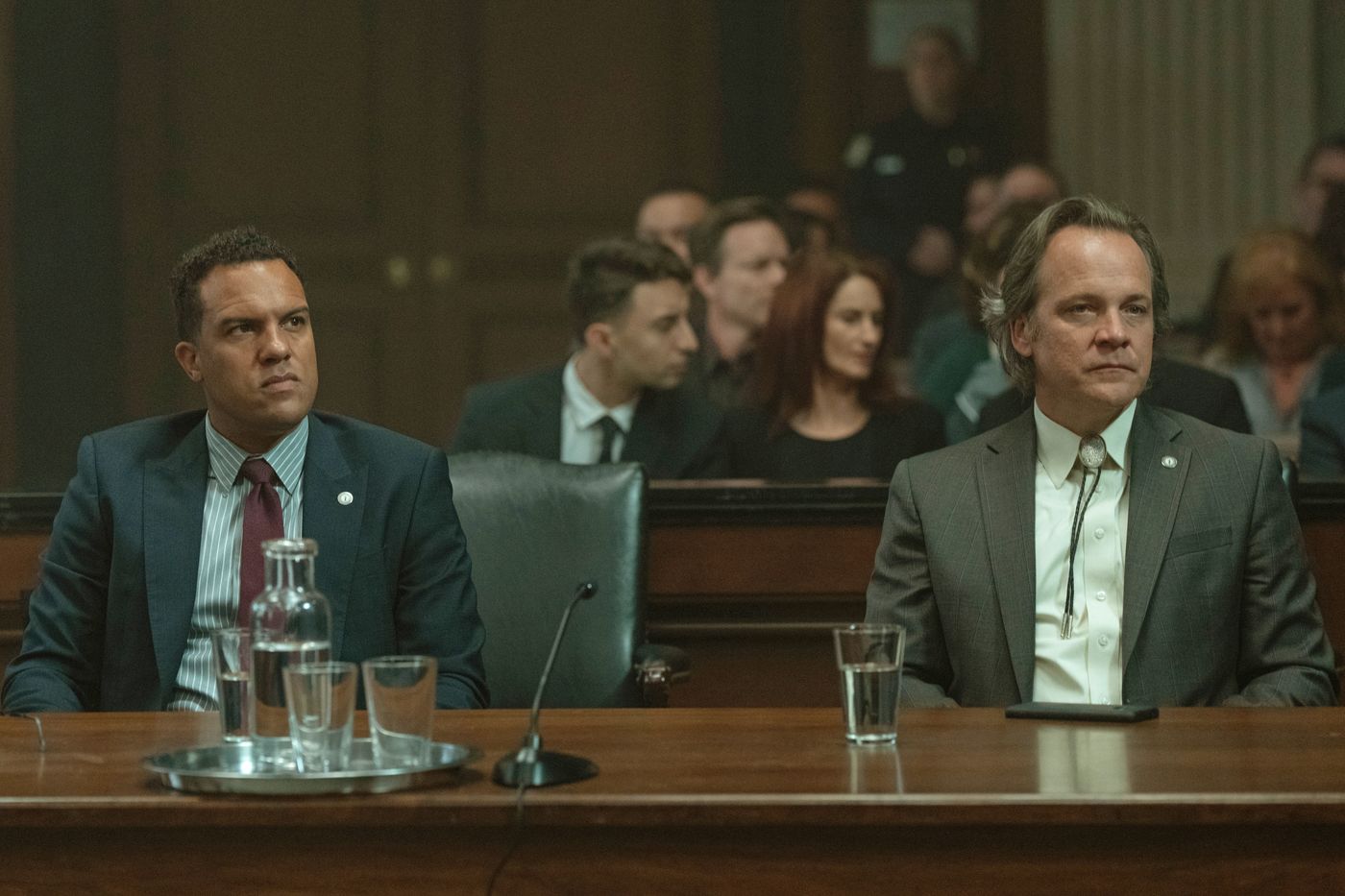
David E. Kelley shows have had a frustrating run over the last decade. For every hit (Big Little Lies), there are about four just-fine titles (Nine Perfect Strangers, The Lincoln Lawyer, Love & Death) and a whole passel of shows that are just plain baffling (Anatomy of a Scandal!? A Man in Full??). But Presumed Innocent does what a David E. Kelley show can do best. It’s mostly a courtroom drama, it works from a solid source text, it uses heavy hitter star power in a deft and effective way, and it’s got a steady build that leads to a satisfying end. Presumed Innocent rests on Jake Gyllenhaal’s shoulders, but it really sings in the secondary cast, especially Ruth Negga, Bill Camp, Peter Sarsgaard, and O-T Fagbenle. The recipe for great TV can be hard to crack, but sometimes it’s about the simple things. Gyllenhaal gets all worked up, his eyes bugs out, everyone else clutches their heads in dismay. —K.V.A.
➽ Read Rafaela Bassili’s recaps of Presumed Innocent; Kathryn VanArendonk’s close read of the final reveal; and Nicholas Quah’s interview with Bill Camp.
Fantasmas (HBO, Max)
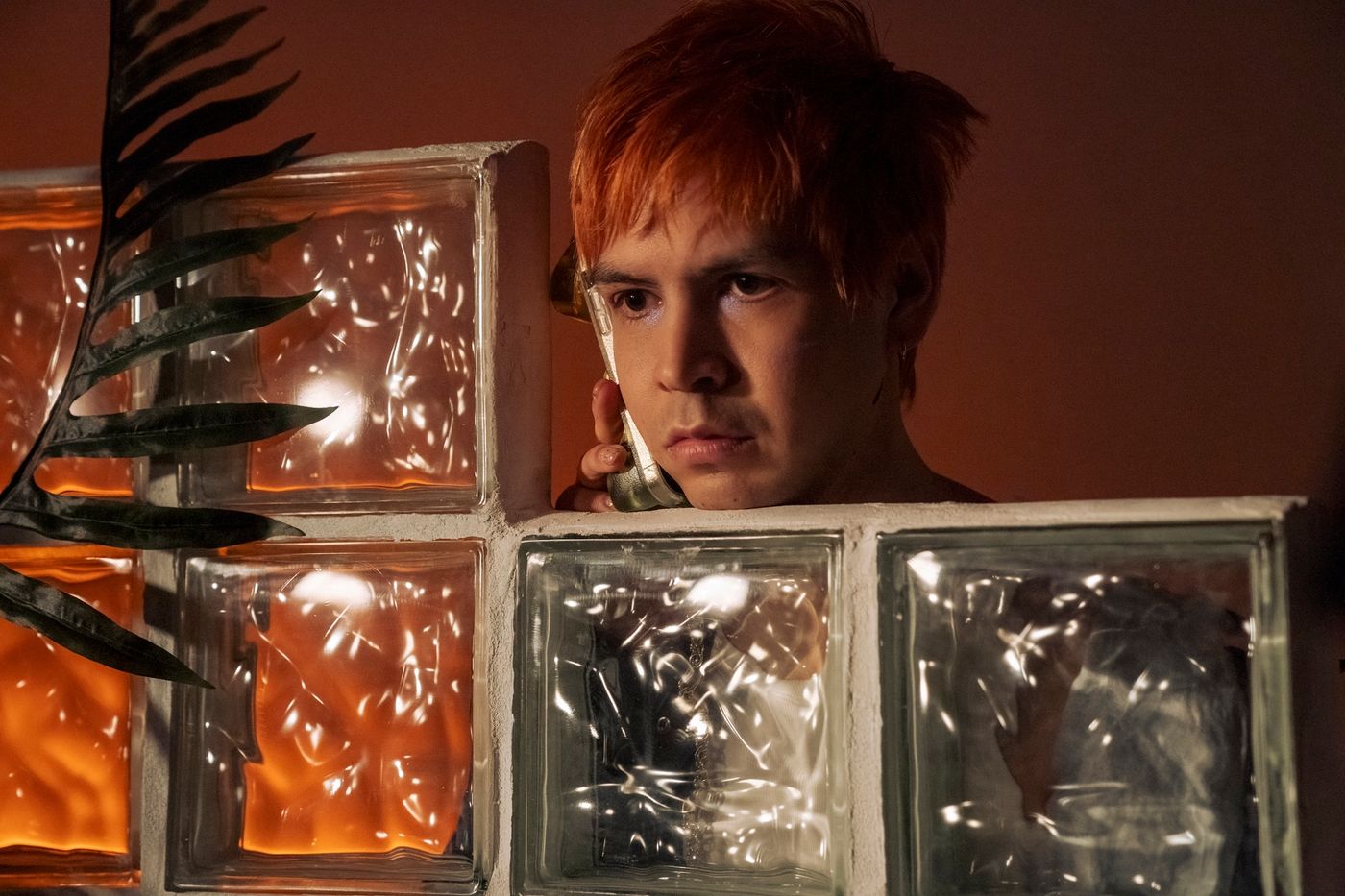
This sketch series takes us inside the mind of creator, writer, director, and star Julio Torres. As one might imagine based on the former SNL writer’s previous work — Los Espookys and Problemista — that mind is an off-kilter, imaginative, bizarre, and very funny place to inhabit. Every episode ambles from one absurdist sketch — a parody of the ’80s sitcom ALF in which the father and the alien are having an affair — to another — a depiction of the wild nights at Fufu’s, a miniature nightclub for gay hamsters — while tracing Torres’s quest to recover an important earring that he lost. This show demands that you not ask it to make sense, but instead just go with its weird-ass flow, and I am perfectly fine following Torres’s trains of thought wherever they decide to take me. —Jen Chaney
The Acolyte (Disney+)
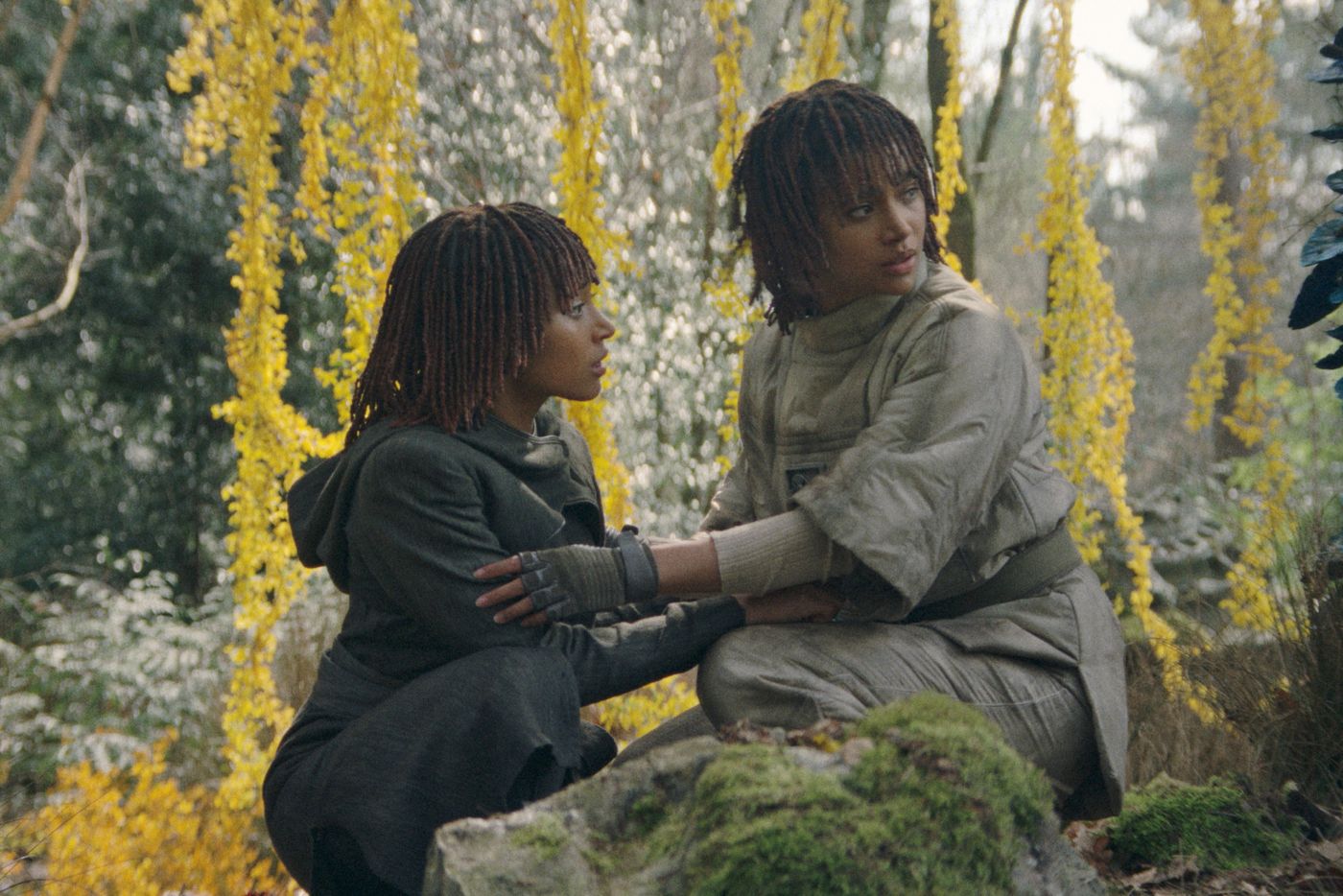
Disney+’s expansion of the Star Wars franchise into television has proven to be a mixed bag. For all the delights of Baby Yoda (or as Disney may insist he be called, Grogu) and the great political thriller of Andor, most of the TV output has tended toward the safe side, with increasingly diminishing returns from fan service. The Acolyte, created by Leslye Headland, shakes things up, both in setting — jumping back to a period at the height of the Jedis’ powers, before George Lucas’s prequels — and themes. The show retains the adventure serial qualities of Star Wars classics and quotes heavily from wuxia films, but it’s darker than it appears on the surface, with an interest in the origins of the bad guys, a critique of the good guys, and fraught father-daughter and sister-sister dynamics. A coming of corruption tale, The Acolyte may have ruffled the feathers of some fans, but it got us excited about the thorny possibilities at the fringes of Star Wars lore: force-wielding witches, morally compromised Jedi masters, and sexy Siths worthy of a fan cam. —Jackson McHenry
➽ Read Noel Murray’s recaps of The Acolyte; Roxana Hadadi’s interview with star Manny Jacinto; and Jackson McHenry’s interview with series creator Leslye Headland.
Couples Therapy, season four (Paramount+ with Showtime)
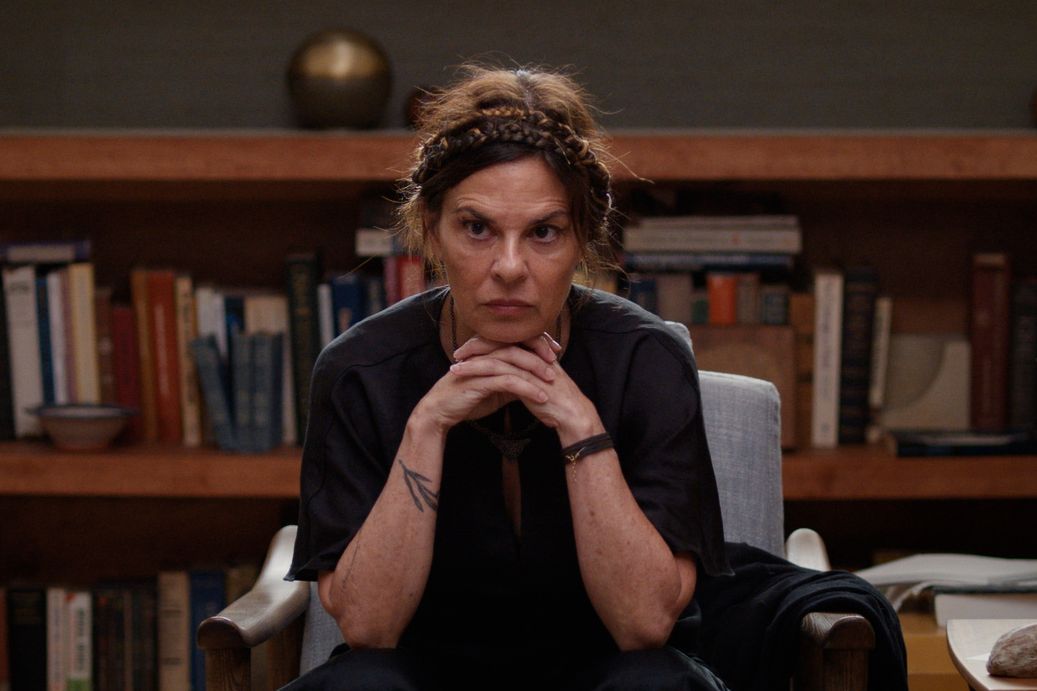
Couples Therapy has been excellent from its very first episode, but each season has its own flavor, its own attractions and drawbacks. This year’s season four is the show operating at the height of its powers: Its couples (and a throuple) are fascinating, compelling figures, and Dr. Orna is magnetic as always. But the show is really about how well its showrunners and editors manage to shape story arcs and character development and emotional beats out of what are initially hours and hours and hours of footage, how they distill complicated and multiform interpersonal dynamics into short scenes without washing away all of the nuance. And season four does it better than this show ever has. —Kathryn VanArendonk
We Are Lady Parts, season two (Peacock)
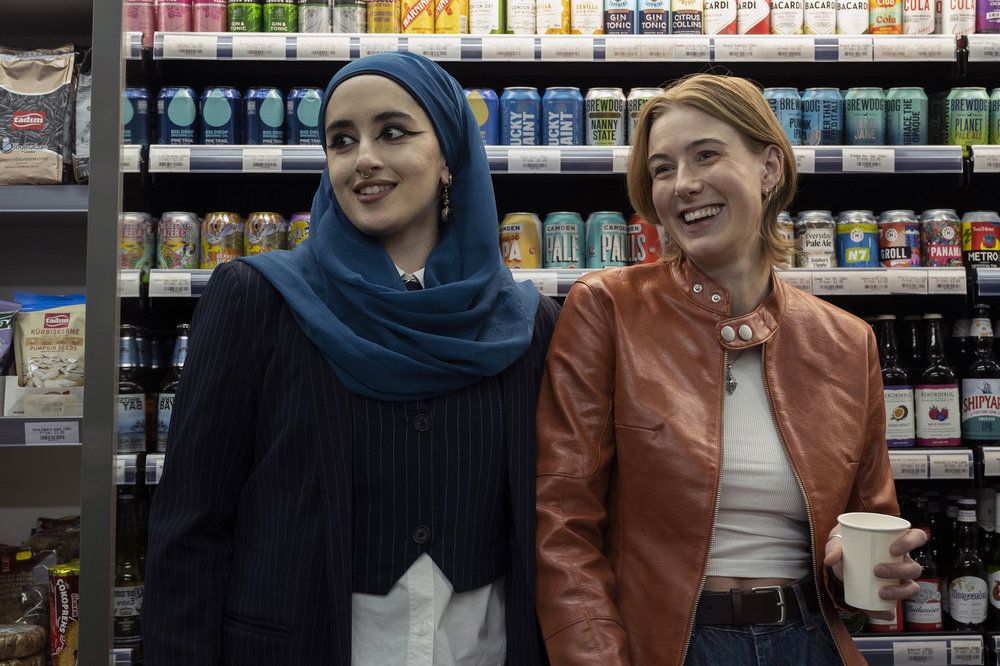
There are many points in the second season of We Are Lady Parts, Nida Manzoor’s wry, political, charming, and invigorating comedy about an all-Muslim, all-girl punk group, where the members of Lady Parts don’t know what their version of authenticity is. They worry they’re not being faithful enough, or creative enough, or honest enough. It’s a lot of doubt, and a noticeably different tone from the first season’s more gung ho, straightforward empowerment vibe. But it’s also exactly what the series needed to go further and deeper into its explorations of identity. Now that Lady Parts is a united band, what does success mean to them individually and as a collective, and what compromises are they willing (or will they be forced) to make? We Are Lady Parts’s ensemble cast rises to the “Who are we now?” occasion wonderfully, in particular Sarah Kameela Impey as the frustrated, uncertain Saira, whose confrontation with an older punk-rocker played by the fantastic Meera Syal cuts to the heart of the series’ questions about what creativity and representation can, or can’t, do. That more reflective tone means that not everything about the season works. While an “Oops, I Did It Again” performance has badass swagger and a showcase of Middle Eastern artists is gorgeously varied, a country song praising Malala Yousafzai is a little too earnest for even this overly earnest show to pull off. But the missteps are rare. In its second season, We Are Lady Parts is reaching for something complex, intangible, and thought-provoking about the intersections of gender, ethnicity, faith, and creativity, and its unwillingness to settle for easy answers is worth praising. — Roxana Hadadi
➽ Read Roxana Hadadi’s interview with creator and director Nida Manzoor.
Evil, season four (Paramount+)
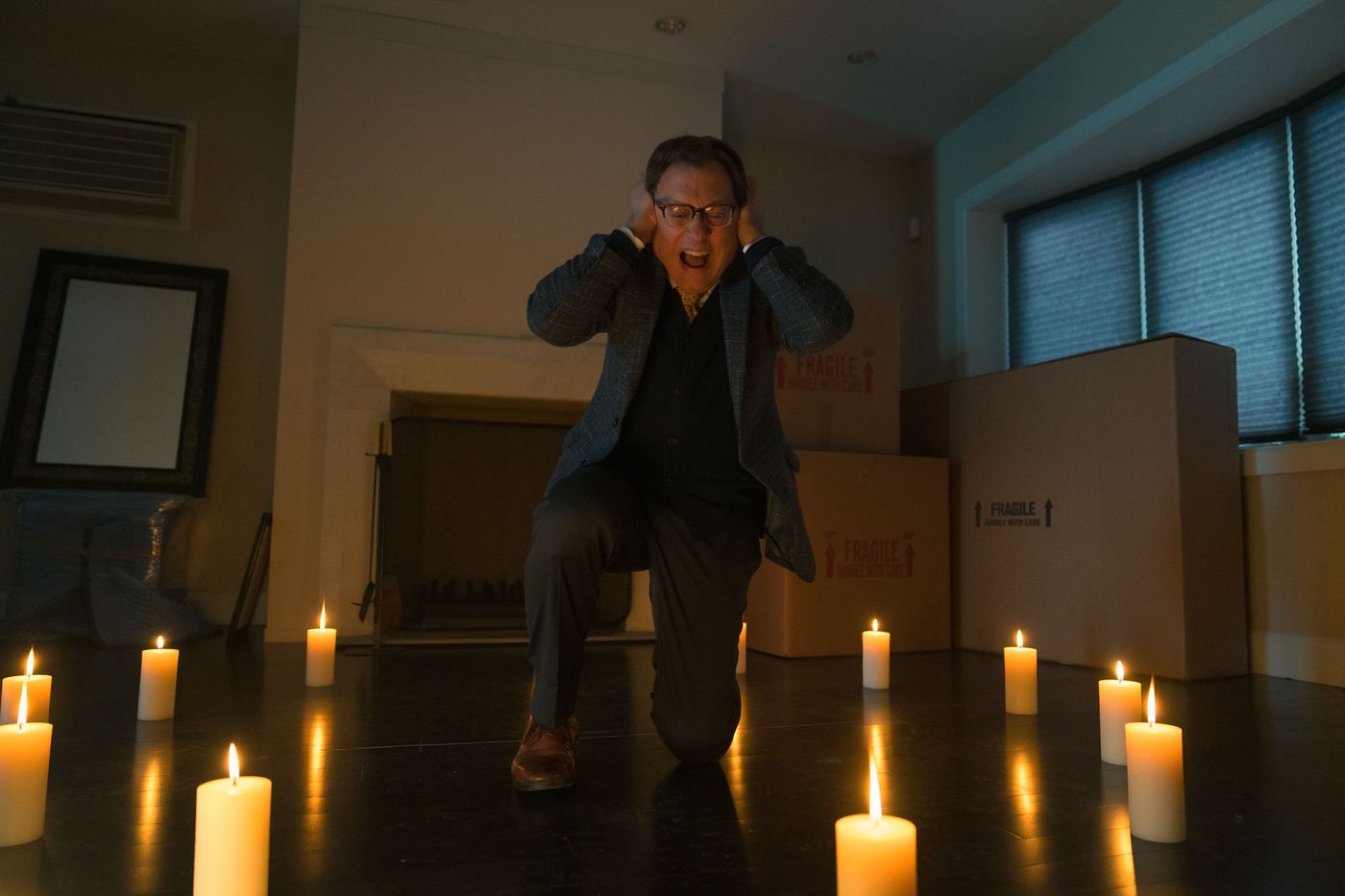
It’s a profound shame that Evil is ending with its current season, especially now that it is being discovered by so many viewers on Netflix. It’s also a shame that Evil is concluding now because it’s still as freaky, funny, thoughtful, and compelling as it’s ever been. In its fourth and final stretch of episodes, creators Robert and Michelle King and their fellow writers have crafted some wild storylines that involve demonically possessed pigs, AI cautionary tales, women forced to work in an office that has an actual glass ceiling and, oh yeah, the birth of the Antichrist. As outrageous as Evil can be, it manages to stay grounded in reality thanks to an array of solid performances from its actors and the care with which the series addresses the conflict between the rational and the spiritual. Name another show currently on television that goes as hard as Evil. You can’t. So help me God, I’m going to miss it. —J.C.
➽ Read Maggie Fremont’s recaps of Evil’s fourth season and Jen Chaney’s interview with Christine Lahti.
Interview With the Vampire, season two (AMC, AMC+)
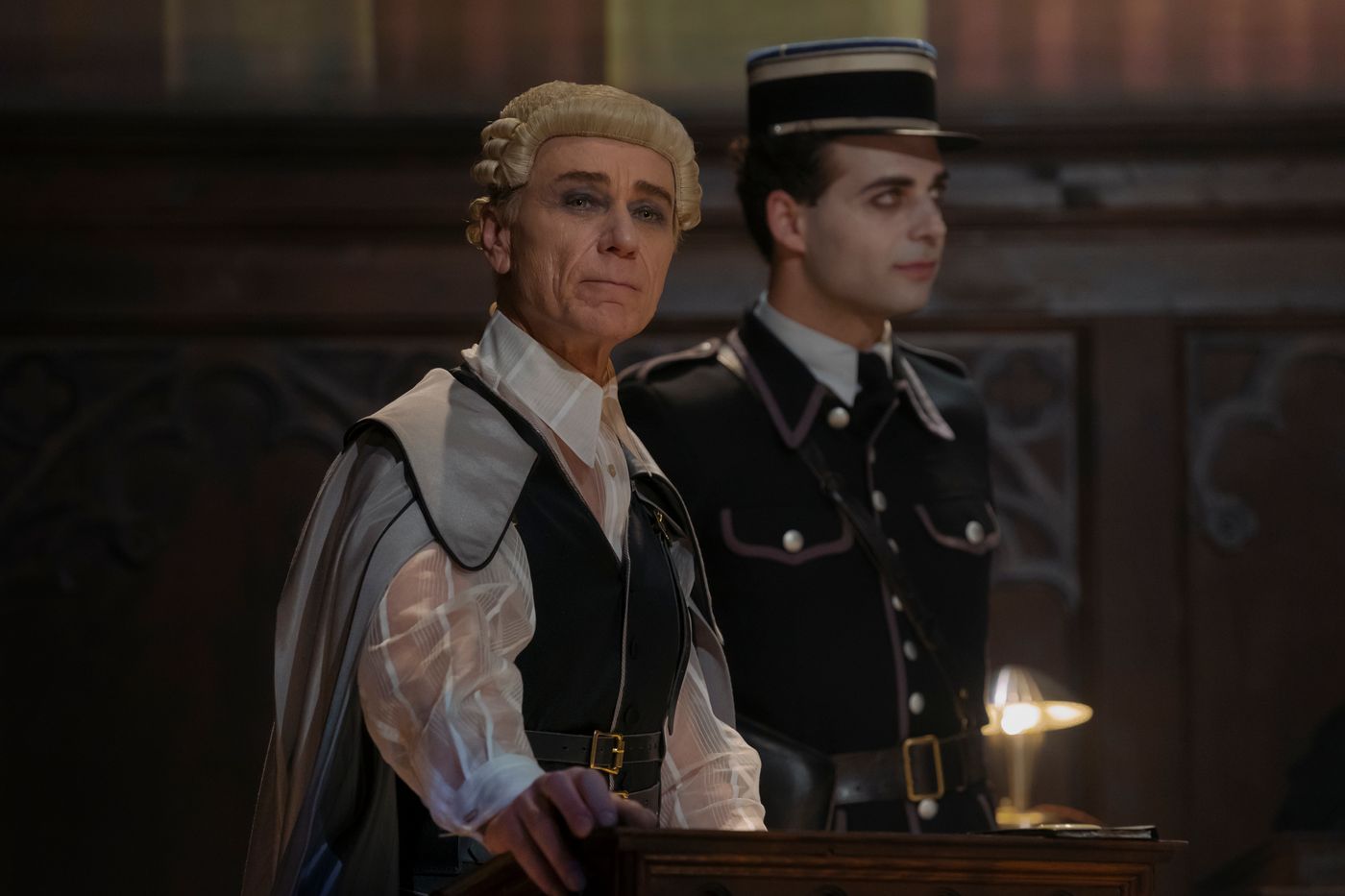
No show on television can match Interview With a Vampire’s thrilling, hallucinogenic, blood-soaked panache. In the second season, the show’s troubled trio of vampires, Louis (Jacob Anderson), Armand (Assad Zaman), and Lestat (Sam Reid, seen mostly in flashback and dream form, considering how Louis tried to kill him at the end of season one), all get entangled in the early 20th century Parisian theater scene, while also pontificating about the woes of eternal life, and working through their many resentments toward each other. IWTV has a taste for wild set pieces — and there is some glorious debauchery on tap at the Theâtre des Vampires — but it’s the emotional core of wounded longing that tugs at you beneath the spectacle: outsiders trying to make peace with a hostile world; vampires as queer metaphor; how do you get over an ex when he’s still in your head? It’s all supported by a mordant Eric Bogosian, conducting that titular interview with Louis in the present, and by Delainey Hayles, who replaces Bailey Bass as the young vampiress Claudia and has perhaps the most moving arc of all. —Jackson McHenry
➽ Read Rebecca Alter’s recaps of season two; Alter’s praise of the series; and Roxana Hadadi’s interview with Delainey Hayles.
John Mulaney Presents: Everybody’s in L.A. (Netflix)
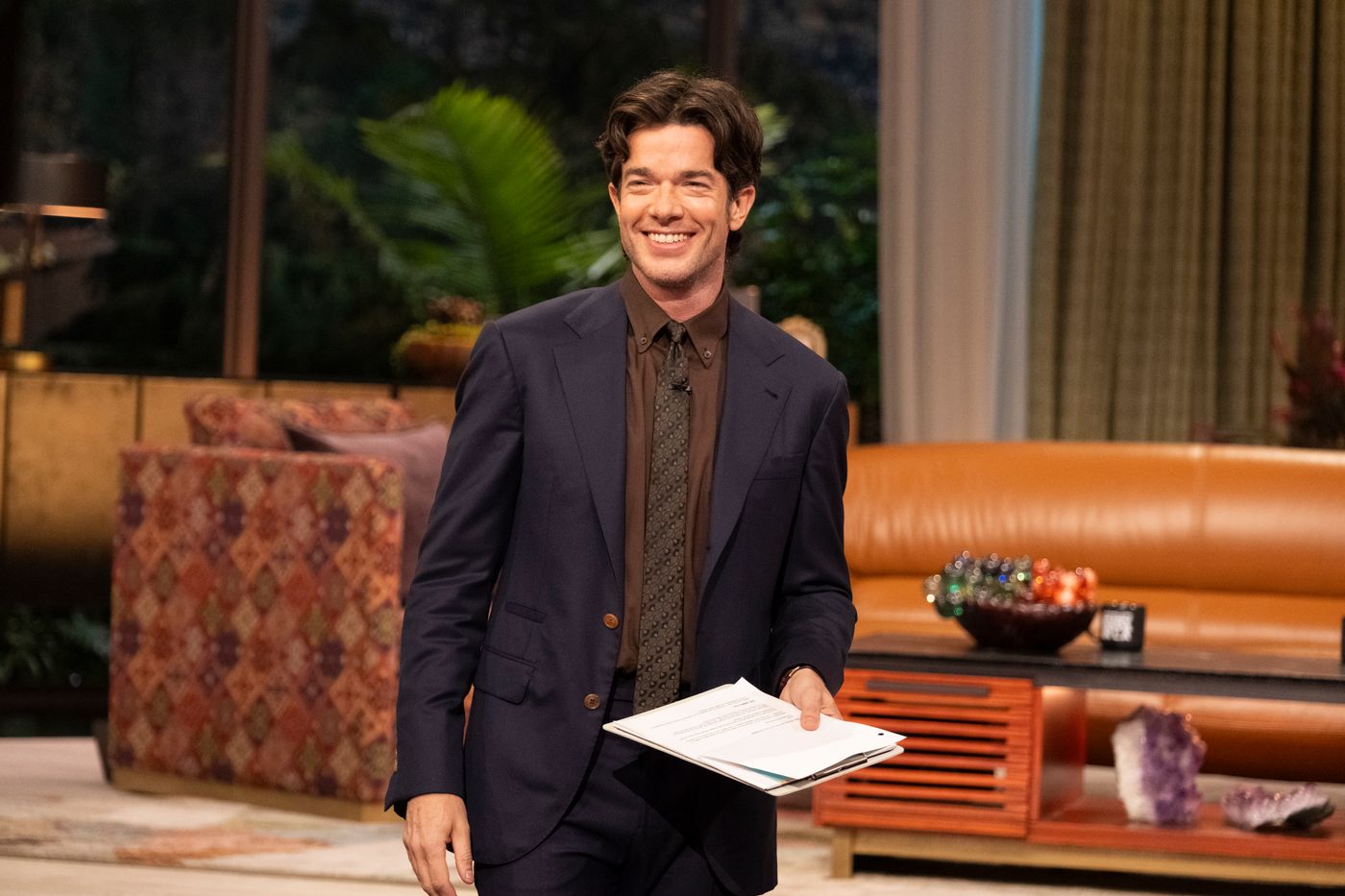
Everybody’s in L.A. was technically similar to other late-night talk shows — it had an opening monologue, celebrity interviews, and pretaped sketches — but it was also the most unusual contribution to the genre in at least a decade. How do you even describe this six-episode, one-off, Netflix Is a Joke Festival–adjacent experiment hosted by John Mulaney, a man who seems to have been genetically designed to excel as a talk-show host? A trippy, improvised opportunity to hear well-known comedians discuss subjects like coyotes and paranormal activity? (Accurate). A show with the common sense to make Richard Kind a wacky sidekick? (Yes, this also.) A proof of concept for an inevitable talk show hosted by John Mulaney, who, again, should be hosting something at all times of the day, seven days a week, because my God, he already has the clipboard and everything? Yes, it was all of this, as well as the only television show in the year 2024, to my knowledge, to use a Wang Chung song as its theme. In short: It was unexpected and the best and we loved it and we hope Mulaney does something in a similar vein ASAP. —J.C.
➽ Read the Vulture staff’s reflections on John Mulaney Presents: Everybody’s in L.A.; Bethy Squires on the five lessons late night can learn from John Mulaney’s talk show; and Josef Adalian on what the talk show’s success means for Netflix.
Hacks, season three (Max)
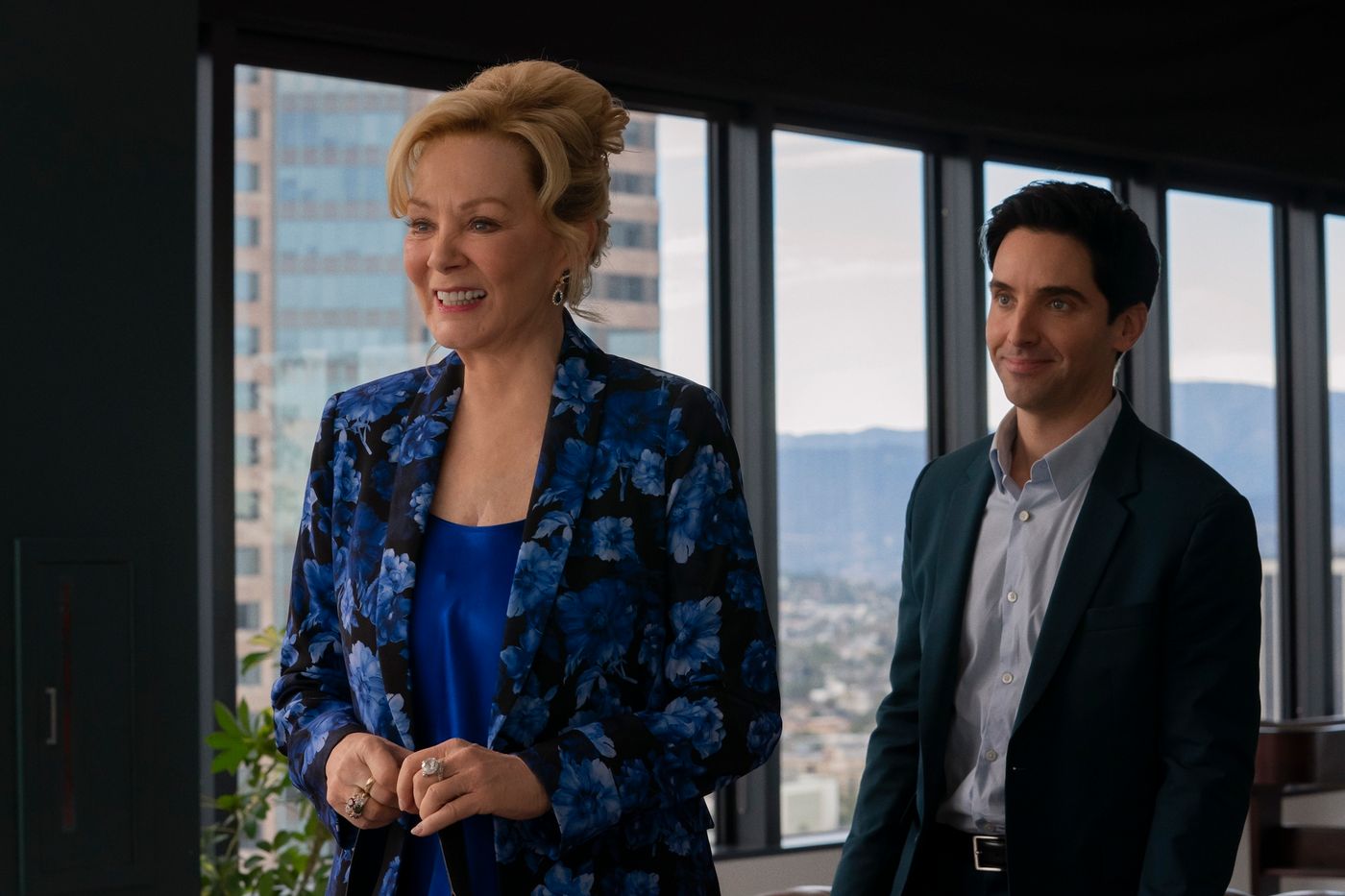
Hacks is at its best when it focuses on the dynamic between veteran stand-up Deborah Vance (Jean Smart) and up-and-coming writer Ava Daniels (Hannah Einbinder). As noted by fellow critic Nicholas Quah, the series is less successful when it attempts to showcase the actual comedy they create. Fortunately, season three leans much harder on the former and evolves into a deeply satisfying season of television that finds fresh friction and insight within their codependent relationship. As Deborah strives to host her own late-night talk show and Ava tries to carve out her own career, they inevitably get into arguments that make it very obvious which one’s the boomer and which one’s the millennial. But those conversations never get too steeped in generational buzzwords; they always seem organic and true to character, qualities only enhanced by the emotional fireworks Smart and Einbinder bring to every scene they share. “It’ll work better because of our relationship. What we make together is good because of it,” Ava tells Deborah in the season finale. She’s talking about why it makes sense for her to be the head writer of Deborah’s talk show, but she could just as easily be describing what makes Hacks so entertaining, particularly in what may be its finest season yet. —J.C.
➽ Read Jessica M. Goldstein’s recaps of Hacks’s third season and Nick Quah on why the comedy works better as a drama.
Conan O’Brien Must Go (Max)
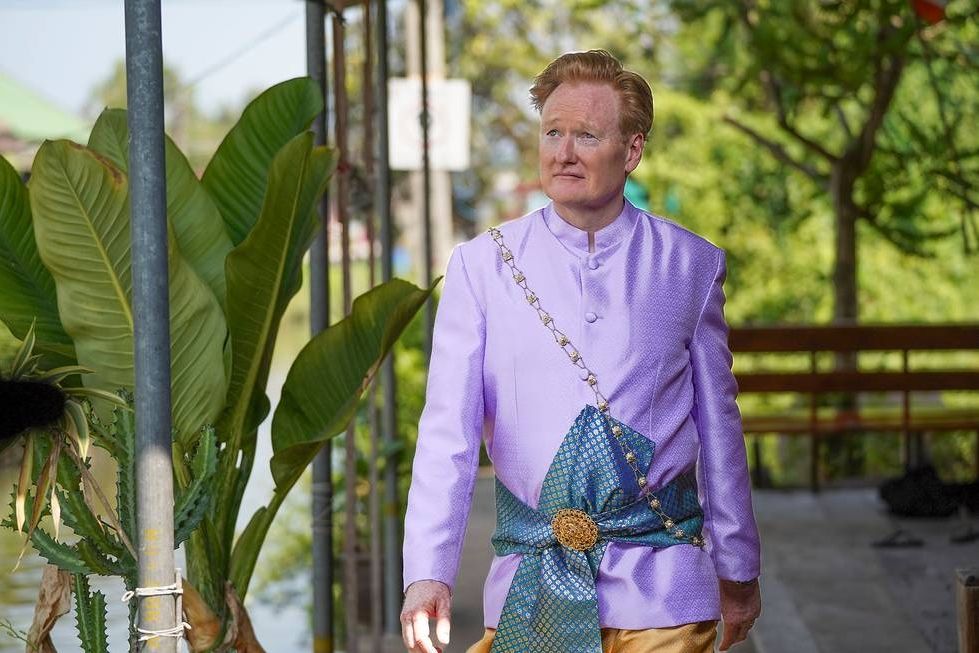
In the deliberately intense introduction to each episode of this travel series/excuse for Conan O’Brien to act like a freak on multiple continents, filmmaker Werner Herzog states: “To truly appreciate the astounding grandeur of this planet, sometimes you must defile it. Behold: the defiler.” That defiler is, of course, O’Brien, who uses this expansion of both his Conan Without Borders specials and his podcast Conan O’Brien Needs a Fan to visit with admirers from all around the globe while also “learning about the culture.” That phrase is in quotes because Conan mostly finds fresh ways to make himself the butt of a joke, whether it’s attempting to learn the tango in Buenos Aires or gyrating all over the floor in a Dublin shop after sampling its black pudding. This series once again proves what comedy fans have always known: If you need a good laugh, just follow Conan wherever he may go. —Jen Chaney
➽ Read Jen Chaney’s full review of Conan O’Brien Must Go.
Under the Bridge (Hulu)
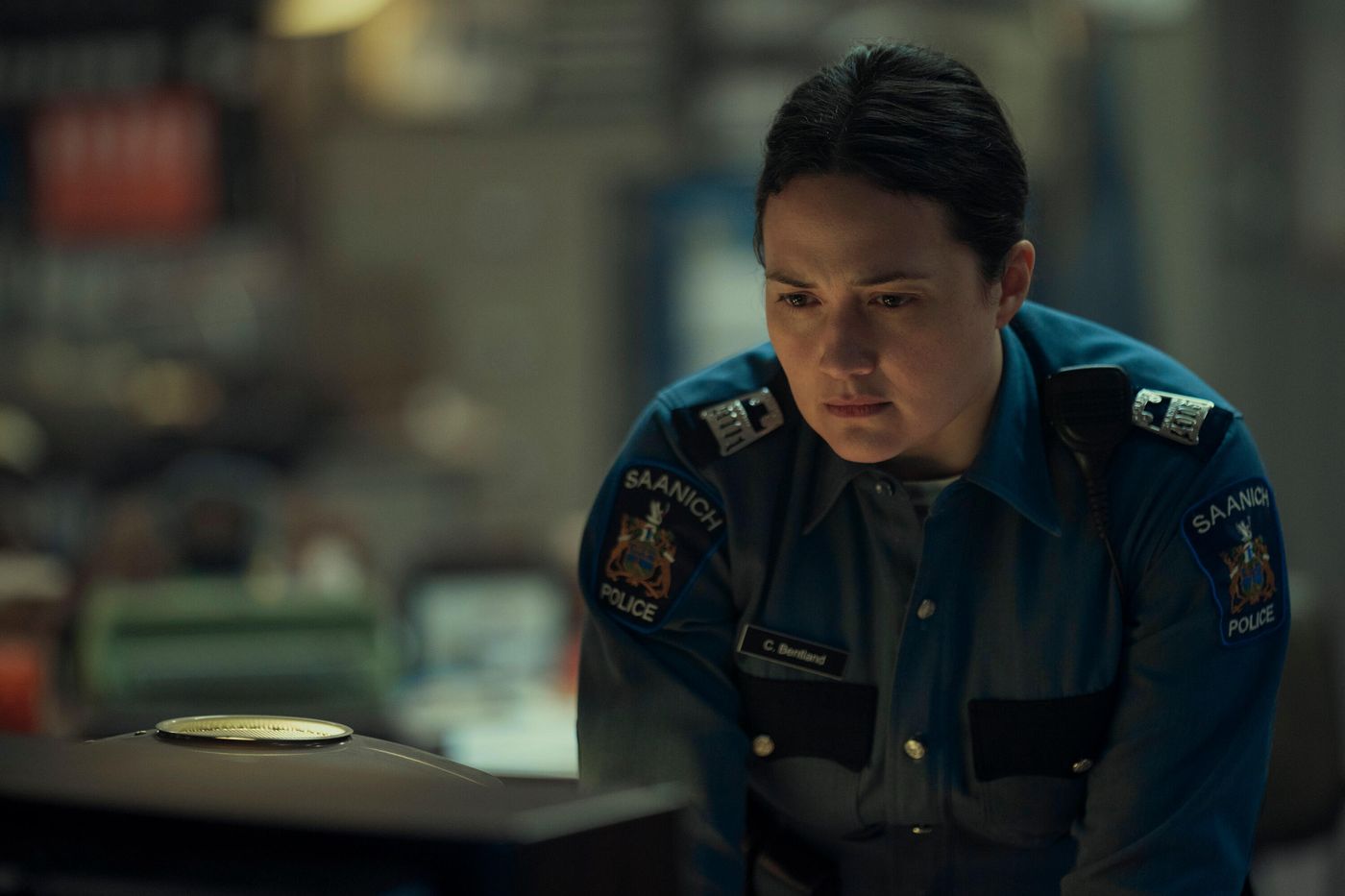
Yes, there is too much true crime, and yes, the genre too often relies on the violence inflicted on women and girls as entertainment. Under the Bridge creator and co-writer Quinn Shephard is aware of both these liabilities and of how easy it would be for the miniseries to dehumanize its central victim, Reena Virk, and to overly dramatize the events surrounding her death. To counteract expectations, Under the Bridge tackles them head on, experimenting with episodic form to give Reena (Vritika Gupta) her own fourth-wall-breaking voice; creating a cop character (Lily Gladstone) whose own First Nations heritage gives her a nuanced, complicated perspective on Reena’s life; and placing author Rebecca Godfrey (Riley Keough), whose same-named book inspired the miniseries, into the narrative to consider how media coverage helps reinforce certain stereotypes and prejudices. What those deliberate choices do is push Under the Bridge from a by-the-numbers recitation of a crime to an exploration of the many contradictory aspects of the feeling of belonging. Under the Bridge is captivated by the impacts of loneliness and loss and what they do to the relationships between a parent and a child, two friends grown apart, and lovers unsure of each other’s loyalties, and its collection of fantastic performances gives the series’ abstract concepts devastating life. —Roxana Hadadi
➽ Read Erin Qualey’s recaps of Under the Bridge.
Ripley (Netflix)

The story of the duplicitous and homicidal Tom Ripley, originally told by novelist Patricia Highsmith in The Talented Mr. Ripley, has been adapted numerous times for stage and screen, most notably in Anthony Minghella’s sun-kissed 1999 film. It’s a testament to the talents of Steven Zaillian, who wrote and directed all eight of these episodes, that this version feels aesthetically distinctive and newly compelling. Photographed in gorgeous, deeply dimensional black-and-white, Ripley is able to do something as a television series that a two-hour feature film can’t: linger in the practical horrors and tension of Ripley’s bad deeds. Played by the brilliant Andrew Scott with a sense of sinister reserve, Ripley doesn’t just — spoiler alert — kill people. He goes to physically exhausting lengths to cover up the murders, efforts that Zaillian captures in excruciating detail. In the end, what this excellent series shows us above all else is how easy it is to con others when you’re a seemingly wealthy, charming white man. —J.C.
➽ Read Roxana Hadadi’s review of Ripley; Hadadi’s interview with director and writer Steven Zaillian; and Rafaela Bassili’s recaps of the series.
3 Body Problem (Netflix)
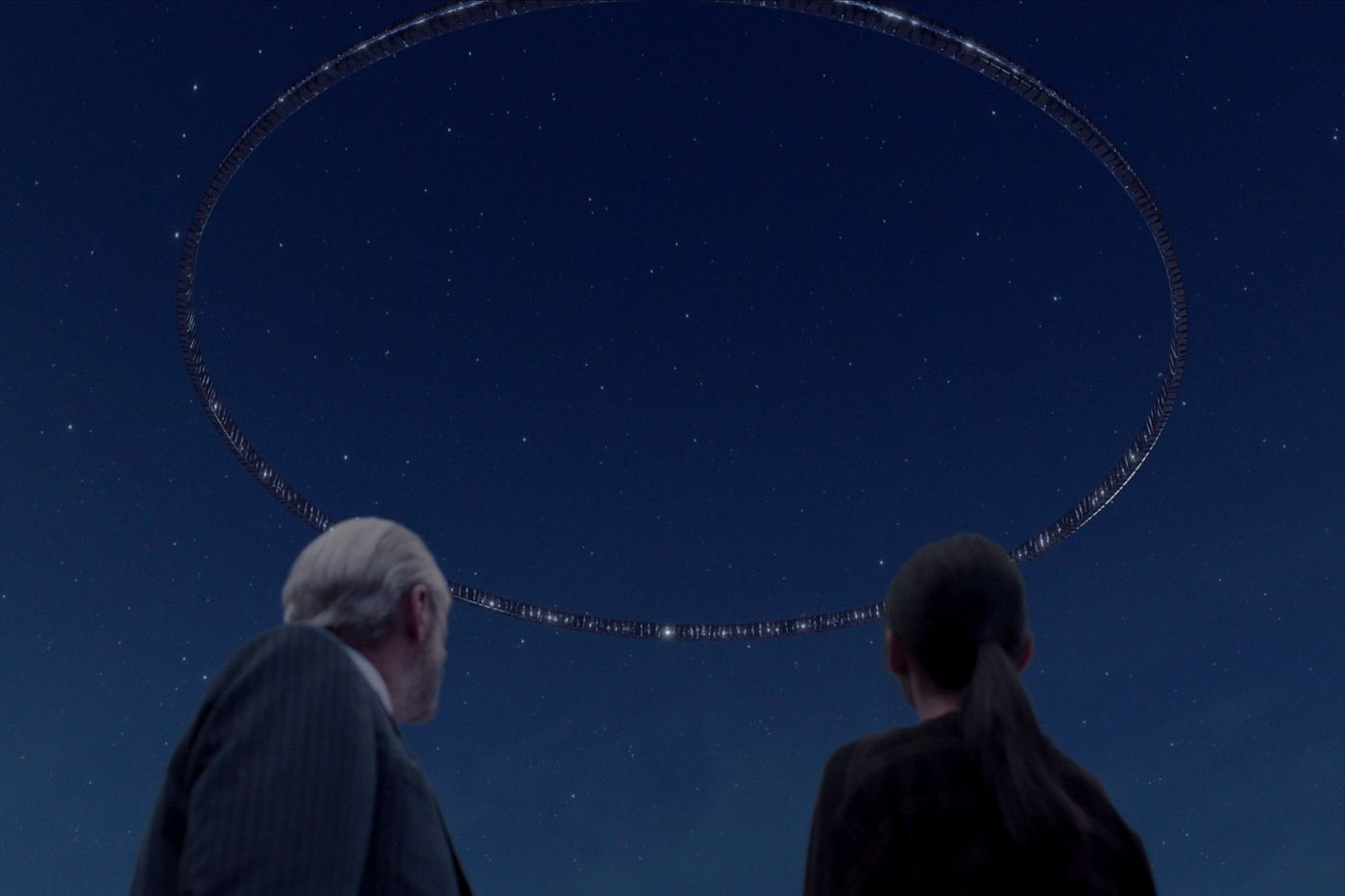
Despite its imperfections, 3 Body Problem reaches to a standard that too few Netflix dramas of recent years have attempted. It has a distinctive, sharp sense of scale and spectacle, and it tackles the challenge of its source text’s adaptation with confidence. The sense of doom and terror from the original novel remains, as do the thinkier, more abstract elements of its alien-invasion story, but it grounds all of that in newly created characters who can help anchor the plot. Sometimes it steers into cheesiness, especially as it emphasizes the toll this story takes on its young scientists, but that’s not a bad thing. Its emotions are big and intense, and all of that helps it overcome the damper of a few unfortunate performances. —Kathryn VanArendonk
➽ Read Kathryn VanArendonk’s full review of 3 Body Problem, Ben Rosenstock’s recaps, and Roxana Hadadi’s analysis of the ending.
X-Men ’97 (Disney+)
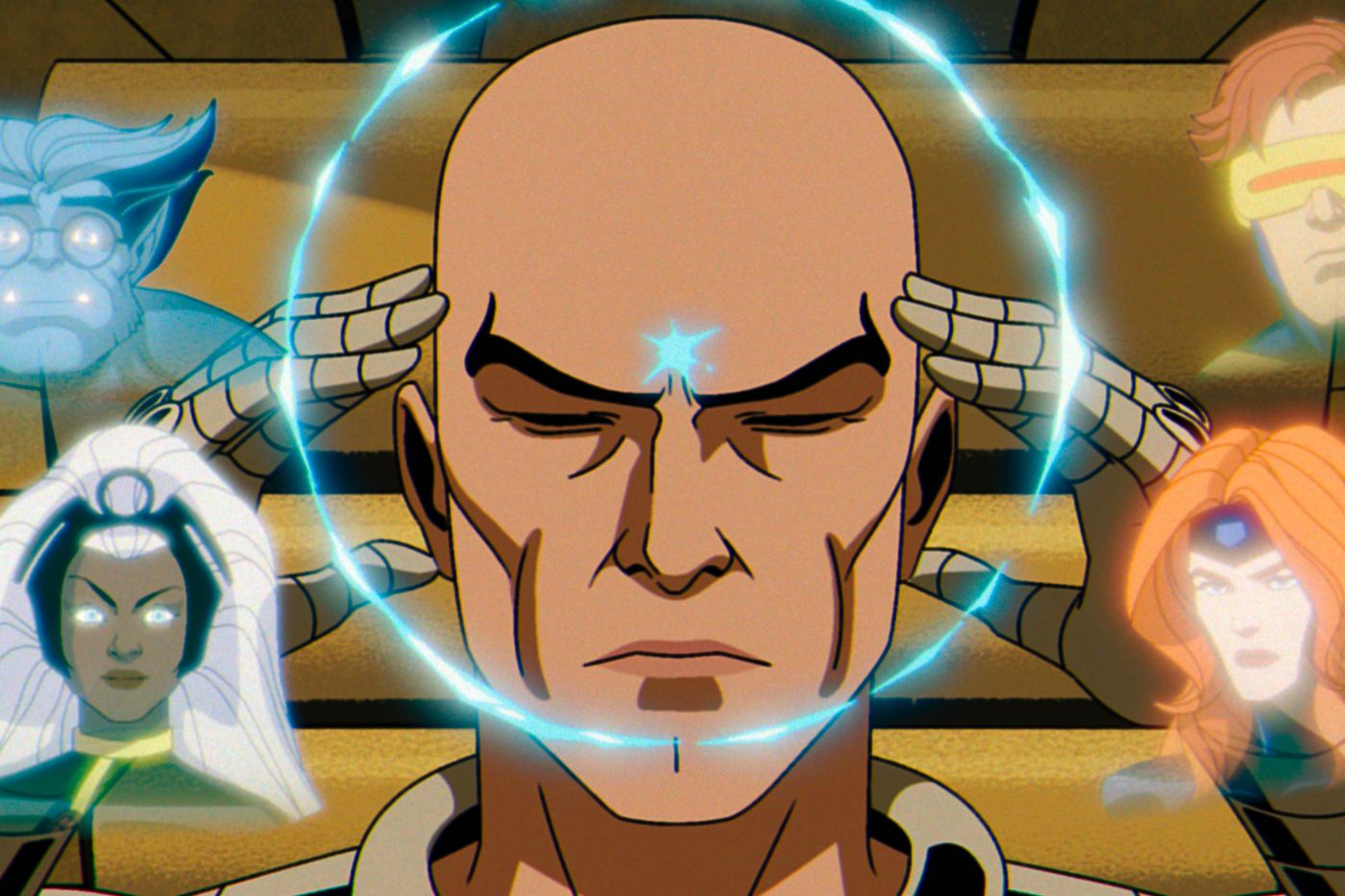
X-Men ’97 tricks you with nostalgia first; it certainly did me. After watching the first three episodes, in which Gambit shows off those Cajun abs in a crop top, Magneto’s condemnation of the United Nations reaches Doctor Manhattan levels of “I am tired of Earth, these people,” and Jean Grey’s history with the Phoenix Force entity is brought up yet again, I wrote about how well the sequel series continues the vibes of its ’90s predecessor. I assumed it would stay in an “X-Men bickering amongst themselves and dealing with one-off villains” space, and that’s fine! What an unexpected joy, then, when X-Men ’97 pushed itself into questions of ideology and morality and pointedly prodded at liberal ideas of tolerance and acceptance via story lines that included a terrorist attack, a fascist alien race, and American-approved war crimes. It got real serious, real quick, meeting adult audiences with a timely narrative that embodies why the X-Men and their core struggle between peace and resistance has always felt so relevant. Yes, it should be nominated for Best Drama at the Emmys this year. And, yes, it was the cherry on the sundae when X-Men ’97 used the expanding Marvel sandbox to tell the Avengers they suck. Nostalgia can be fun, but what X-Men ’97 ultimately gave us was better than a walk down memory lane. It was a bold push into the future. —R.H.
➽ Read Roxana Hadadi’s look at the nostalgia in X-Men ’97’s earliest episodes and Hadadi’s close read on the show’s relationship to the Avengers.
Girls5eva (Netflix)
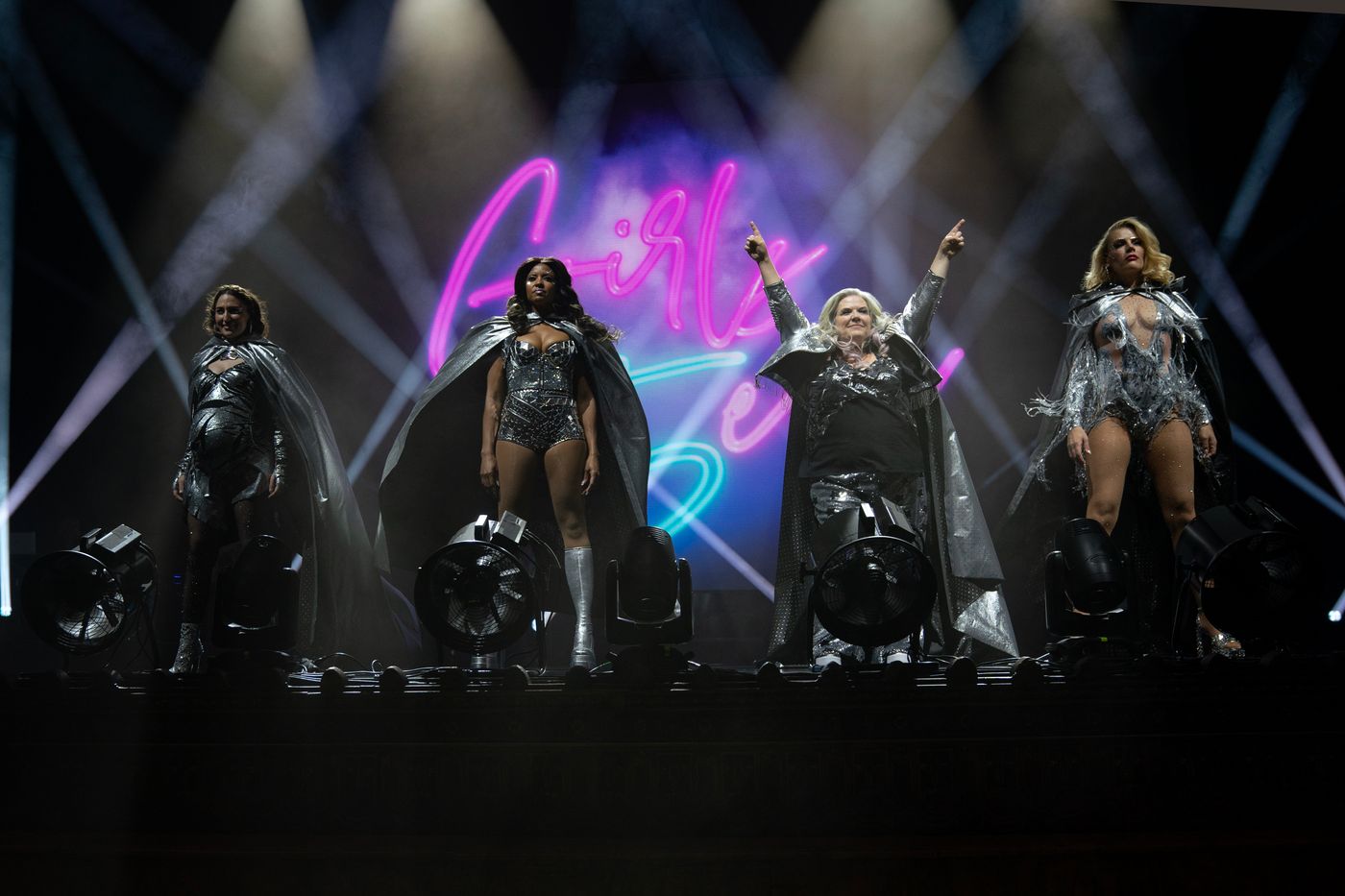
With its move from its original home on Peacock to Netflix, Girls5eva has become a series about a turn-of-the-millennium girl group seeking a second chance at stardom that is itself getting a second chance on a new streaming platform. Its third season is the perfect showcase for what makes this comedy such a spit-take generator. All four of the talented principal actresses — Sara Bareilles, Paula Pell, Busy Philipps, and Renée Elise Goldsberry as Wickie Roy, the diva-est diva to ever diva — get equal opportunities to shine. The cultural references generated by creator Meredith Scardino and her team of writers range from the of-the-moment — there are tons of Netflix gags and a Girls5eva country song built for this Cowboy Carter moment — to the delightfully obscure, including riffs on the comic strip “Andy Capp” and this 2004 incident involving Jessica Simpson and Jewel. As always, this show likes its comedy fast, wide-ranging, and relentless. Crack up too long at one joke and you’ll miss two or three more. That’s why they invented pause and rewind: so you can make sure to catch every absurd bit in this hilarious show. —J.C.
➽ Read Maggie Fremont’s Girls5eva season-three recap and Hadadi’s close look at the show’s most horrifying image.
Extraordinary (Hulu)

The first season of this British comedy, set in a version of East London where everyone discovers a unique superpower at the age of 18, was very good. The second season, in which 25-year-old Jen (Máiréad Tyers, a virtuoso of the dry line delivery) is still waiting for her unique gift to reveal itself, is flat-out great. Series creator Emma Moran engages in world-building on a grander, more whimsical scale, weaving in details — like a restaurant called Little Italy that requires patrons to shrink before entering — worthy of a Charlie Kaufman film. Extraordinary never takes things into overly twee territory, though. Its comedic sensibility is too sardonic for that, and its ultimate interests — in how (mostly) regular people deal with breakups, family conflicts, and grief — are rooted in reality to make this a series that’s both wild and completely relatable. —J.C.
➽ Read Chaney’s full review of Extraordinary season two.
Shōgun (FX, Hulu)
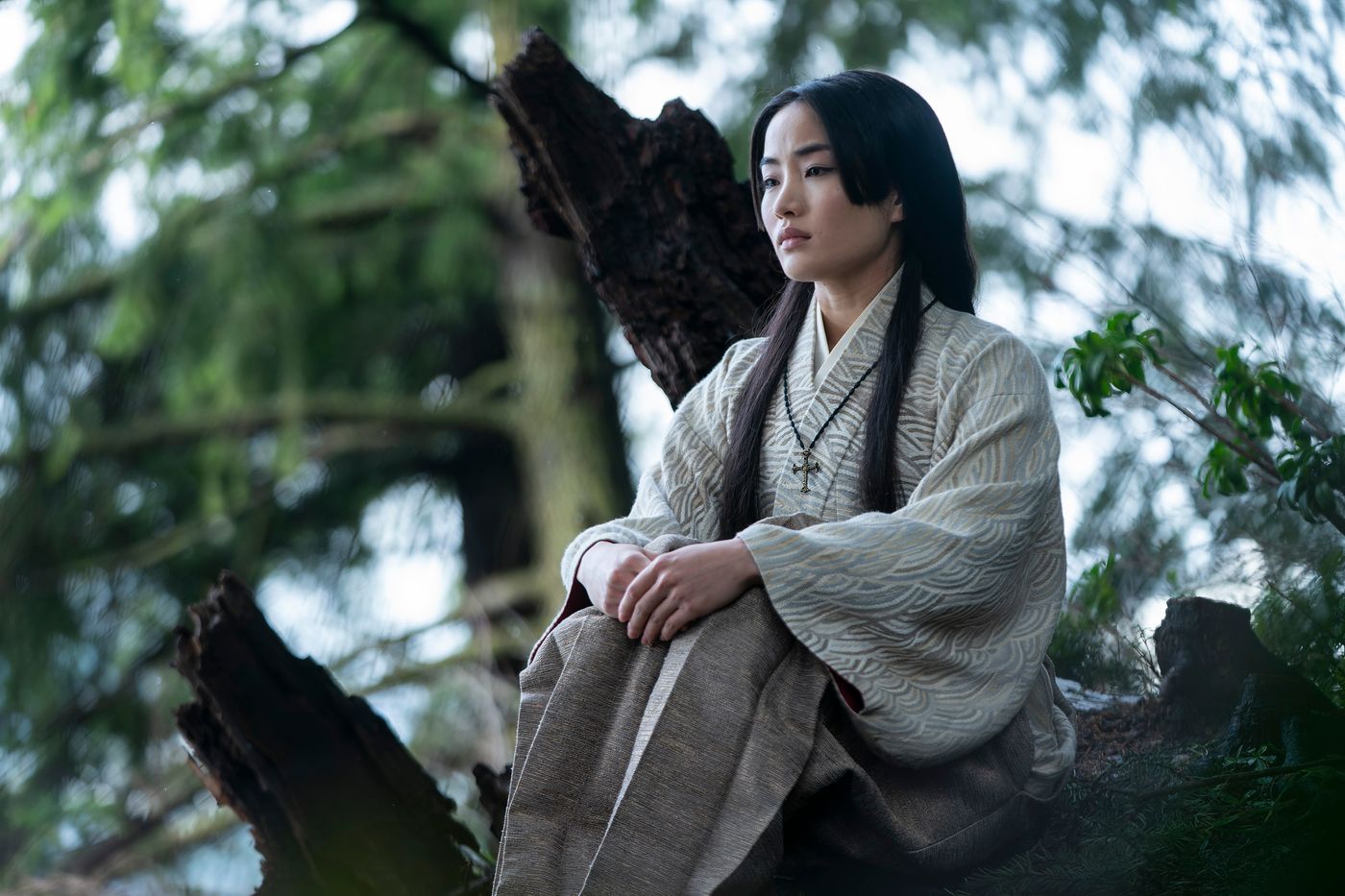
Lush, careful, violent, and full of subtle palace intrigue, Shōgun is a reminder that well-made dramas can still move the needle for both viewership and discourse. The performances are fantastic, especially those from Anna Sawai and Hiroyuki Sanada, and its remarkable cinematography and art direction are key to the show’s appeal. But at its core, Shōgun is a demonstration of confidence: It trusts its audience to invest in its characters, to be patient and attentive while its stories unfold. Even more importantly, though, it rewards that investment throughout. There’s no “just wait and it’ll get better.” It’s fully itself from the first moment. —K.V.A.
➽ Read Matt Zoller Seitz’s review of Shōgun; Roxana Hadadi’s interview with star Hiroyuki Sanada; Nicholas Quah’s interview with star Anna Sawai; and our recaps for the limited series.
One Day (Netflix)
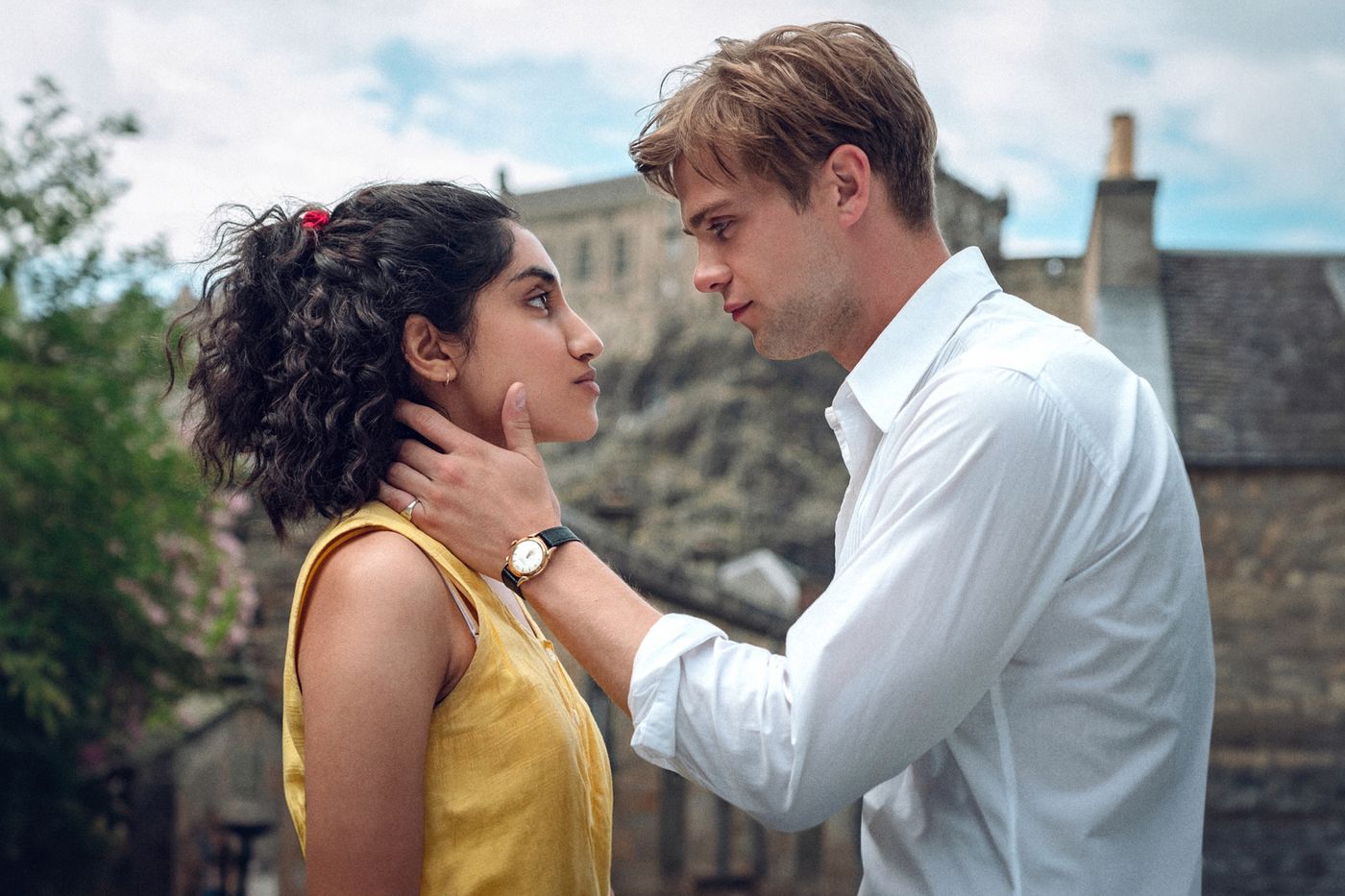
David Nicholls’s novel that traces the relationship between two potential lovers on the same day over the course of multiple decades was made into a largely panned movie in 2011. In 2024, the book has finally been adapted the way it always should have been: as a television series. Structurally, it makes so much more sense for this narrative to unfold over episodes that each signify a different July 15 in the saga of fellow uni alums Emma Morley (Ambika Mod) and Dexter Mayhew (Leo Woodall). This approach, overseen by creator and lead writer Nicole Taylor, also gives the audience more time to absorb the idiosyncrasies of its two main characters and their shared dynamic. Unlike a two-hour rom-com, One Day can take its time to sit within quieter moments, allowing us to watch as the low-simmer chemistry between Emma and Dexter — Mod and Woodall are lovely together — starts to boil on a higher heat. After a few episodes, punctuated by some fantastic needle drops, you become deeply invested in their future, which makes the various twists and turns in their story that much more joyful and heartbreaking. If you’re looking for a romance that’s light yet substantive and touching without being cloying, make One Day your next date. —J.C.
➽ Read Fremont’s One Day series recap.
Tokyo Vice, season two (Max)
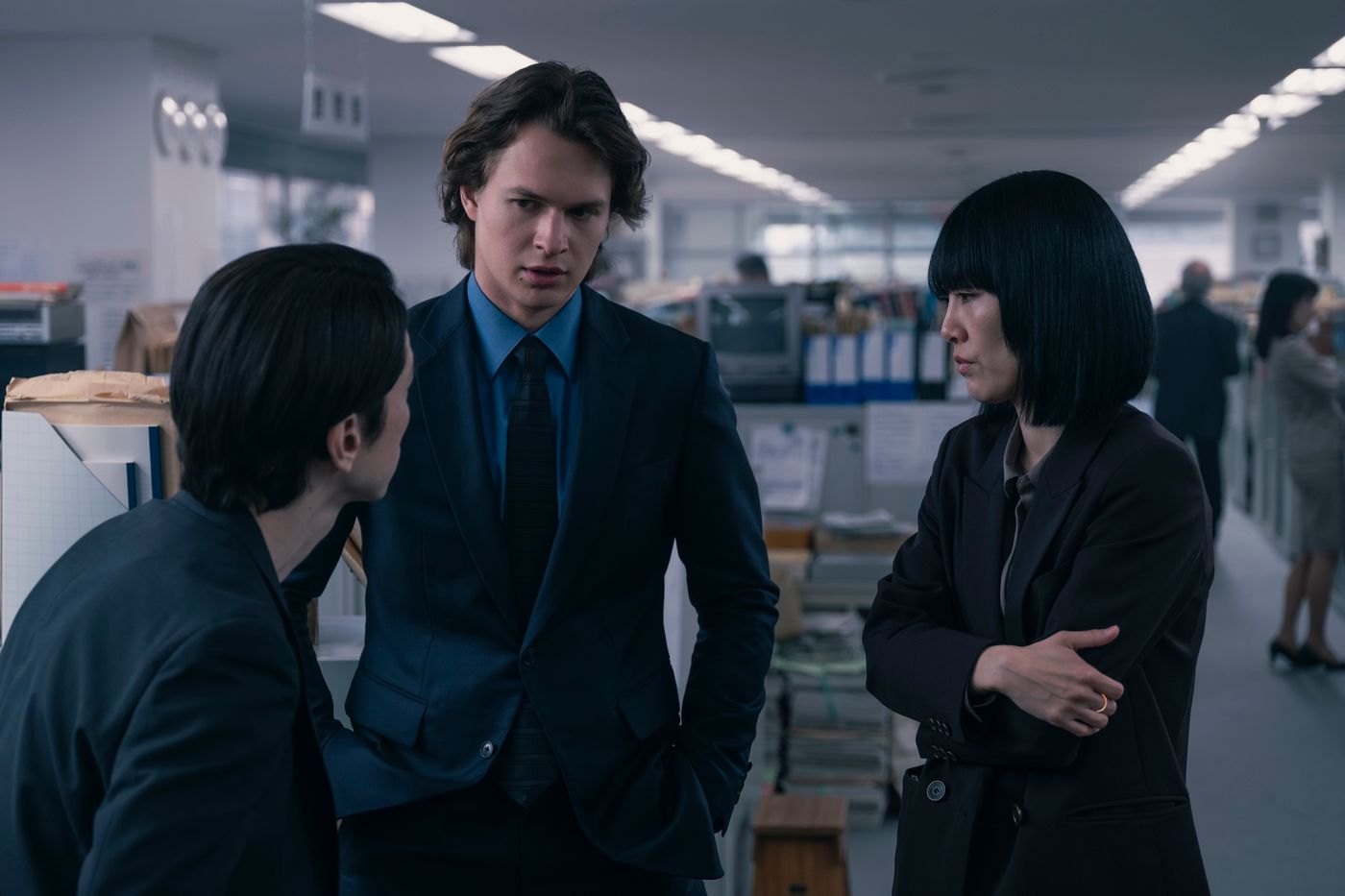
In a different era of HBO, Tokyo Vice would have been huge (and would have aired on the channel proper rather than its Max arm). A show about stylish Japanese gangsters and one plucky American expat reporter trying to penetrate the world of the yakuza in search of the truth — that’s The Sopranos crossed with The Newsroom with a pilot episode directed by Michael Mann to boot. But Tokyo Vice premiered in the in-between, as HBO was trying to figure out how it and Max would coexist, and the series never felt as if it were getting the marketing or promotional treatment it deserved. This is a coolly confident, precisely constructed series with a number of excellent performances (Ken Watanabe as a beleaguered detective chasing the yakuza; Rinko Kikuchi as an encouraging editor unwilling to cut Ansel Elgort’s reporter, Jake Adelstein, any slack; the scene-stealing Sho Kasamatsu as a gangster on the rise in his organization) and an evocative visual style that makes 1999 Tokyo look worthy of building a time machine to get to. Admittedly, the series probably makes the same mistake Jake does: He initially can’t get over how cool the yakuza seem to be — tattoos and designer suits and guns! But Tokyo Vice is never afraid to take a second look to reveal why a subculture takes a specific shape. It’s the kind of TV we should cherish while we can. —Roxana Hadadi
➽ Read Vulture critics Hadadi and Nicholas Quah’s conversation about Tokyo Vice and Andy Andersen’s recaps of season two.
Abbott Elementary, season three (ABC, Hulu)
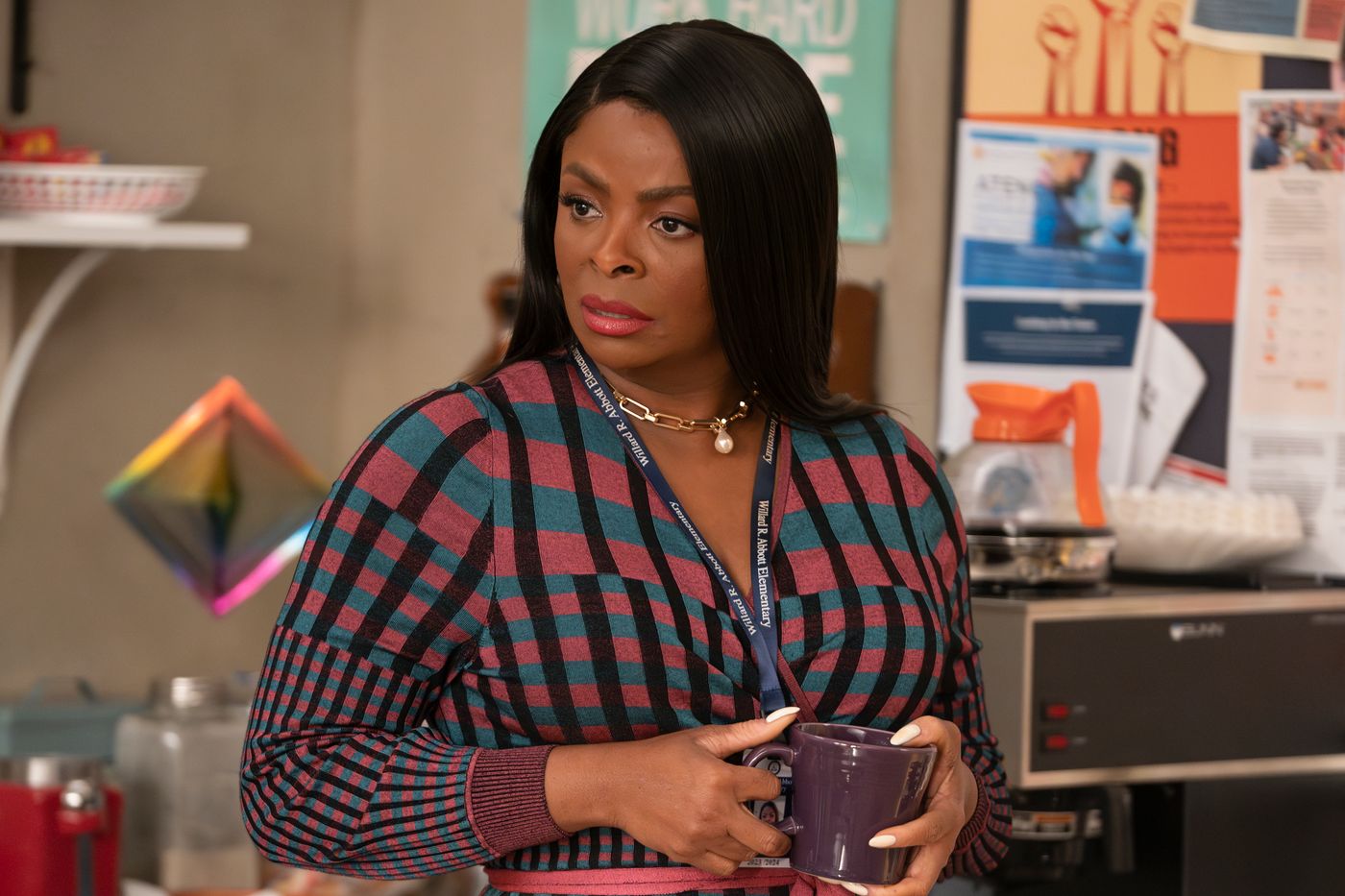
The best sitcom on broadcast television and arguably all of television just keeps getting better. In its third season, Abbott shifted Janine (Quinta Brunson) into a new job with the school district, a move that smartly put yet another obstacle in the way of her getting together with Gregory (Tyler James Williams) and also enabled the series to take a broader view of the challenges of working within the public-school system. Yes, the show overdid it a little on the celebrity-cameo front. But that’s a more than forgivable sin considering that it also delivered some of the funniest, most sharply written episodes in Abbott’s still-young life. Actually, the fourth episode of the season, “Drugs” — in which the staff struggle to figure out how to talk to students about drugs and alcohol in an era that’s way past “Just Say No” — was one of the funniest episodes of television I’ve seen this year, period. —J.C.
➽ Read Ile-Ife Okantah’s recaps of Abbott Elementary’s third season; Devon Ivie’s interview with actor William Stanford Davis; and Roxana Hadadi’s close read on Janine and Gregory’s relationship.
True Detective: Night Country (HBO, Max)
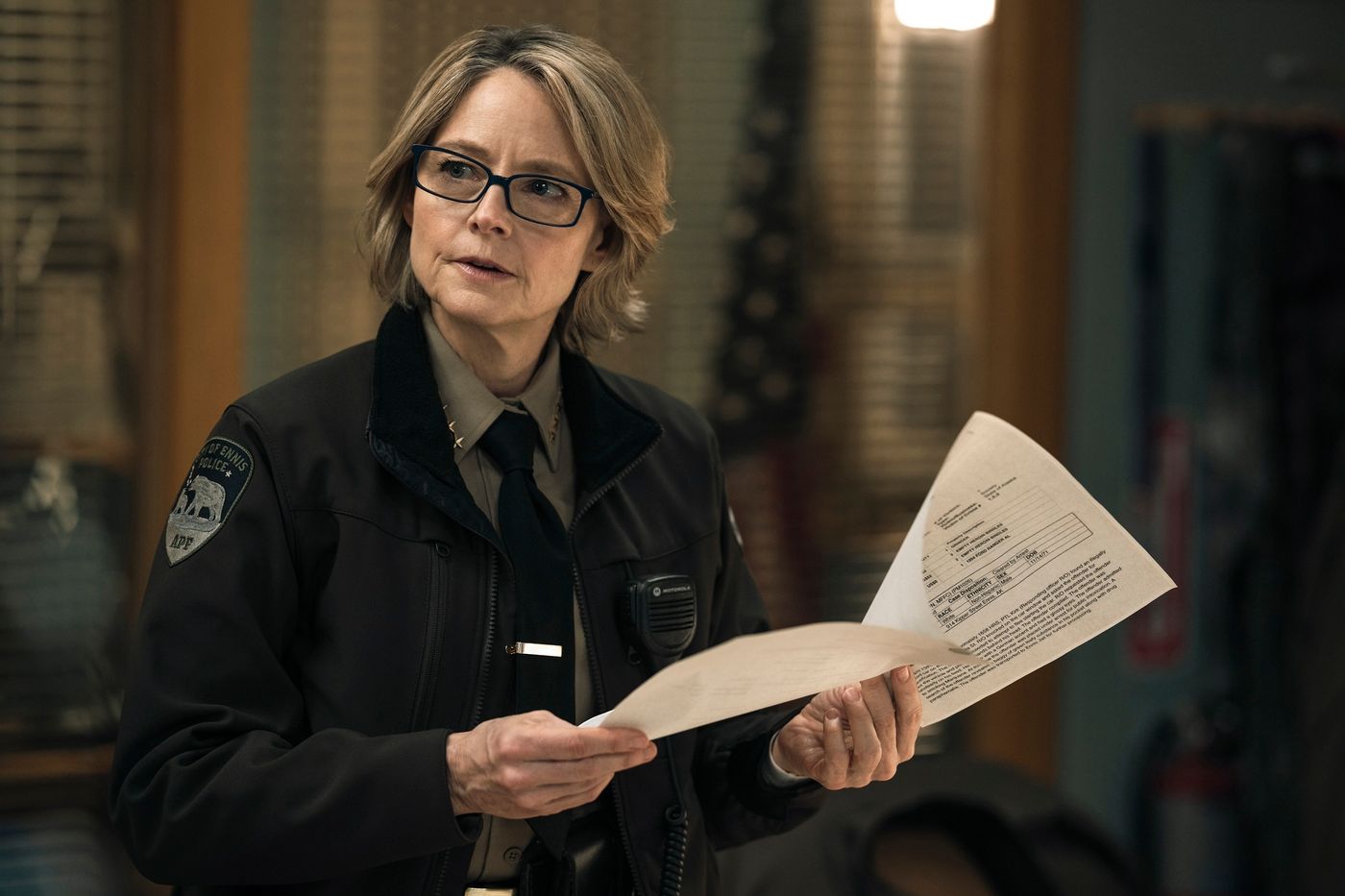
The lead performances from Jodie Foster and Kali Reis are the first and most crucial thing about this year’s return to the True Detective franchise, but the most exciting element is the success of showrunner Issa López’s larger concept for the series. It translates the anthology series into a new landscape while retaining so much of the creeping horror of the show’s first season, but it also brings a more pointed perspective. There’s a chilly noir vein alongside the horror now with a thematic interest in corruption and disenfranchisement that was present but not fully considered in the earlier seasons. It makes True Detective more cohesive than it has ever been before but without losing the sense of supernatural unease. —K.V.A.
➽ Read Hadadi’s review of True Detective: Night Country, Amanda Whiting’s recaps of the season, Hadadi’s interviews with star Kali Reis and showrunner Issa López, and Chaney’s close read of the ending.
The Traitors (Peacock)
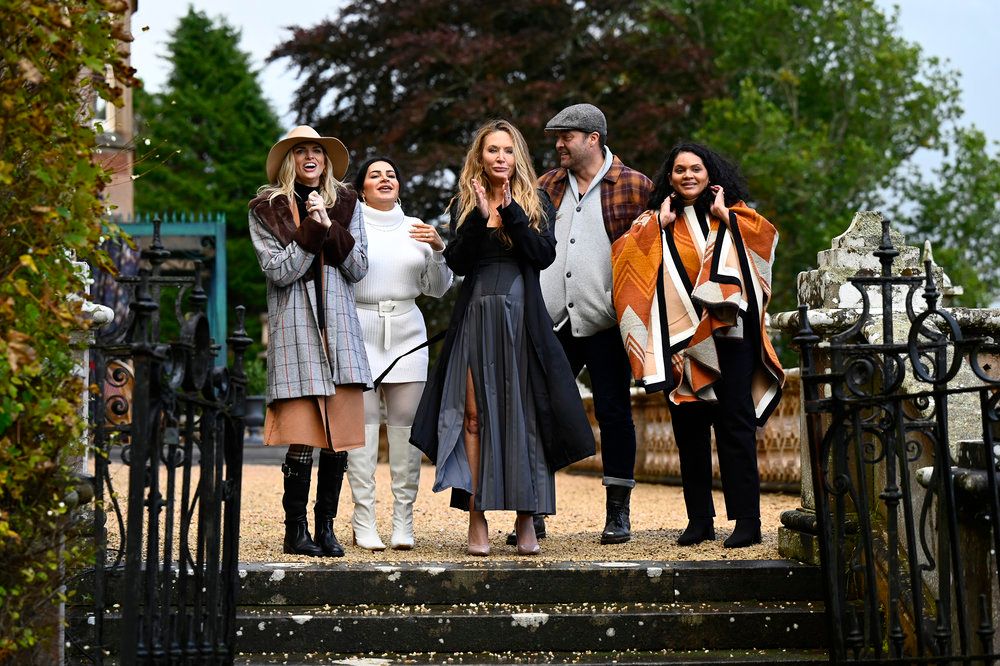
It’s been a while since a reality show shook up the genre (for Americans, at least), so it was a surprise when the proudly campy and ruthlessly deceitful The Traitors abandoned the premise that had done the said shaking up. No more normies competing with reality stars for a pot of cash that would be swiped from the hands of Faithful players if they let a Traitor make it to the final? Wouldn’t replacing the mix of genre veterans and regular-people newcomers with only genre veterans, who all seemingly know how to play the game in a predictable way, negate the joy of the show? Well, yes and no. Sure, the loss of normies who provide us a glimpse at actual, non-manufactured reality TV removes a certain tension from the series, as critic Nicholas Quah wrote at the season’s premiere. But The Traitors’ season two was a fascinating slice of reality TV as it is now, with different kinds of artifice from across the unscripted genre butting up against one another. How do players of competition-style games rely on brute force to gain allies, compared with Bravolebrities, who demand network loyalty, compared with a Bachelor who is out for blood? The Traitors was often impossible to predict, an odyssey of human behavior as shaped by television conditioning and the knowledge that the cameras are always rolling. Could the algorithm have written “Oh my Lord, sweet baby Jesus, not Ekin-Su”? It could not. —R.H.
➽ Read Molly Fitzpatrick’s recaps of The Traitors season two, Rebecca Alter’s profile of host Alan Cumming, Hadadi’s interview with contestant CT Tamburello, and Rosenstock’s close read of the edit.
Fargo (FX, Hulu)
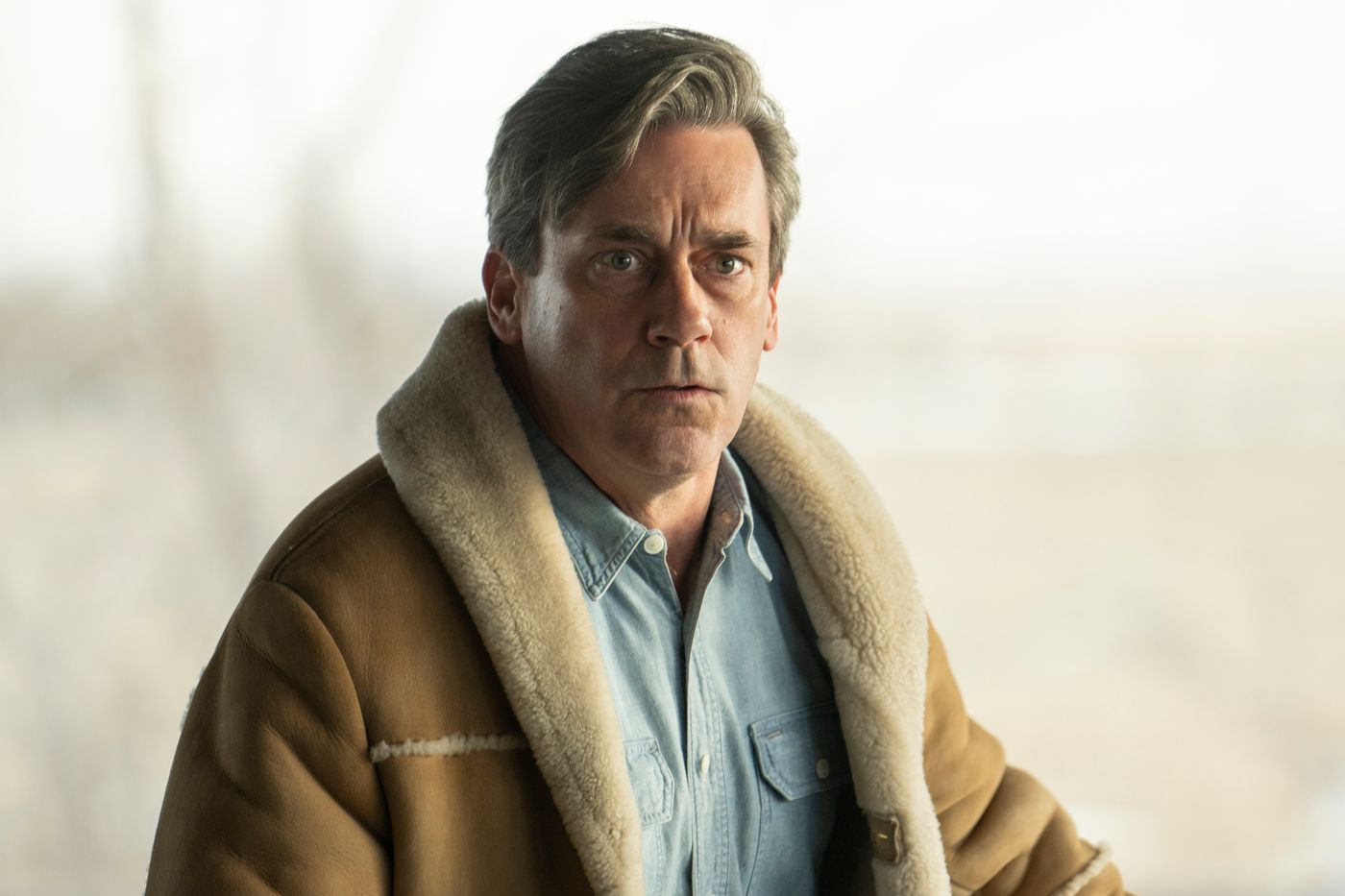
In its series form, Fargo has always been about the unique oddness that is America: its capitalism and its crime, its gender roles and its patriarchy, its absurdly wide gaps in wealth and power and how that difference begins to feel supernatural, uncanny, unreal. The fifth season of Noah Hawley’s adaptation took all that and flung it into the near past, using the rise of Donald Trump as a backbone for another portrait of this country, its moral failings, and its last holdouts of human decency. Everyone here is doing fantastic work — Juno Temple’s steely resolve and chameleonic physicality; Jennifer Jason Leigh’s cunning, me-first brand of feminism; Jon Hamm’s growling and nipple-pierced exceptionalism — but the season belongs to Sam Spruell’s Ole Munch, who encapsulates the series’ ideas about debt as a religious, financial, and cultural force of identity obliteration. It is peak Fargo, a return to form after wayward third and fourth seasons and a pointed commentary on how being in the black or the red is meaningless if you’ve already lost your soul. —R.H.
➽ Read Chaney’s review of Fargo season five, Hadadi’s interview with star Jennifer Jason Leigh, and Hadadi’s close read of the ending.

